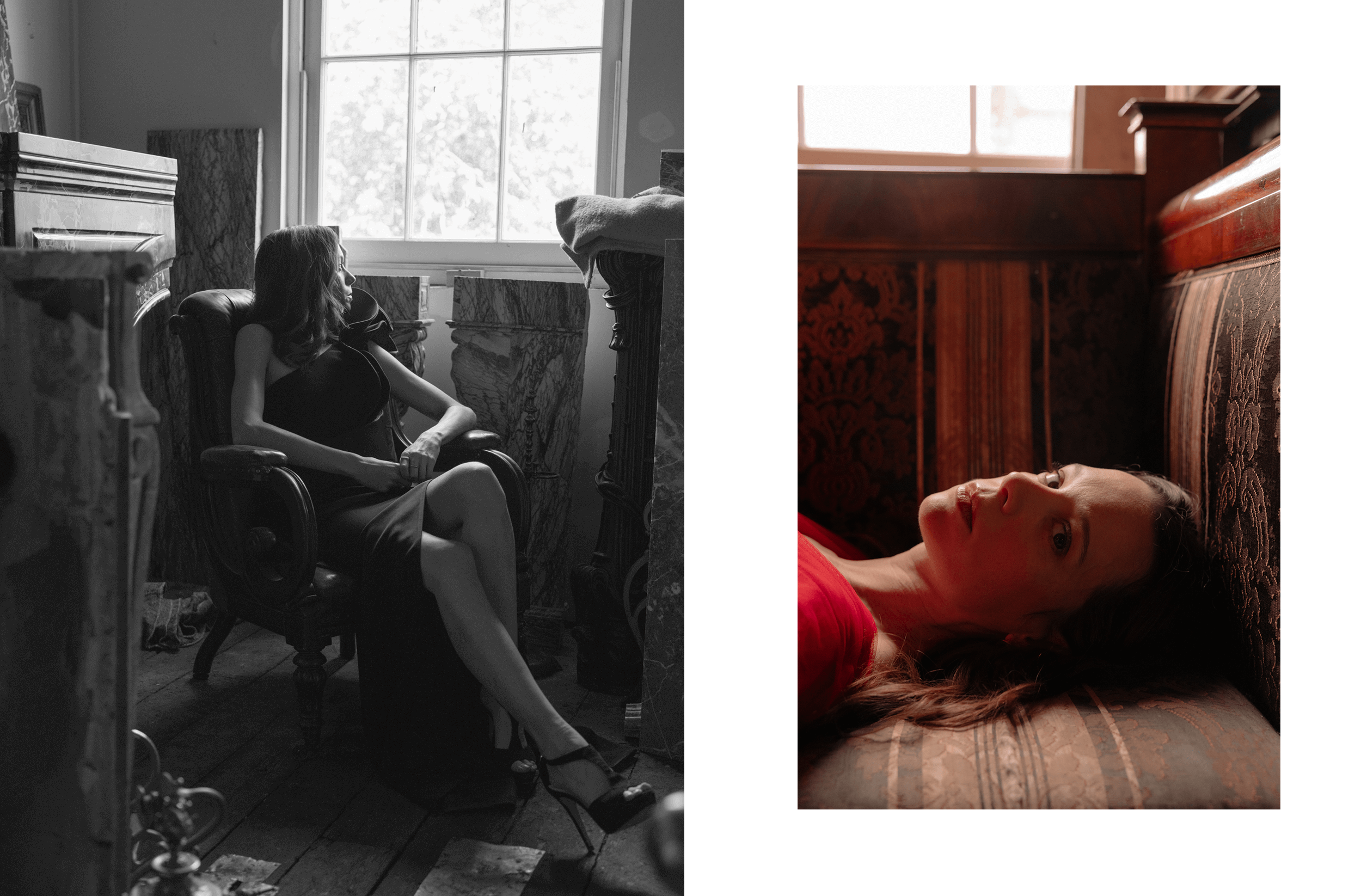Our new Cover is an actress who has always stood out for choosing specific, beautiful projects that mean something important and that, in some way, tell many small parts of her.
Our new Cover is an actress that we have been following for a long time and who is now the protagonist of one of the most beautiful mini-series of the year: “Under the Banner of Heaven” (available on Hulu and Disney+).
Chloe Pirrie is our Cover and we talked with her about her difficult preparation process to play her character, Matilda, how understanding her has been, at the same time, natural, and how she had to balance a thousand facets of her.
“Under the Banner of Heaven” tells the story of a fundamentalist Mormon family from Utah who commits a series of murders. The story was told by Jon Krakauer in the book of the same name and was then brought to the screen by Dustin Lance Black. A project that will take you on a strong emotional journey and that will perhaps make you discover a reality that seems so far away but is actually not.
With Chloe, we talked about how important it is to make your voice heard, her love for independent cinema, her desire to be on the other side of the camera to be able to tell stories, and how being an artist can be an act of rebellion itself.
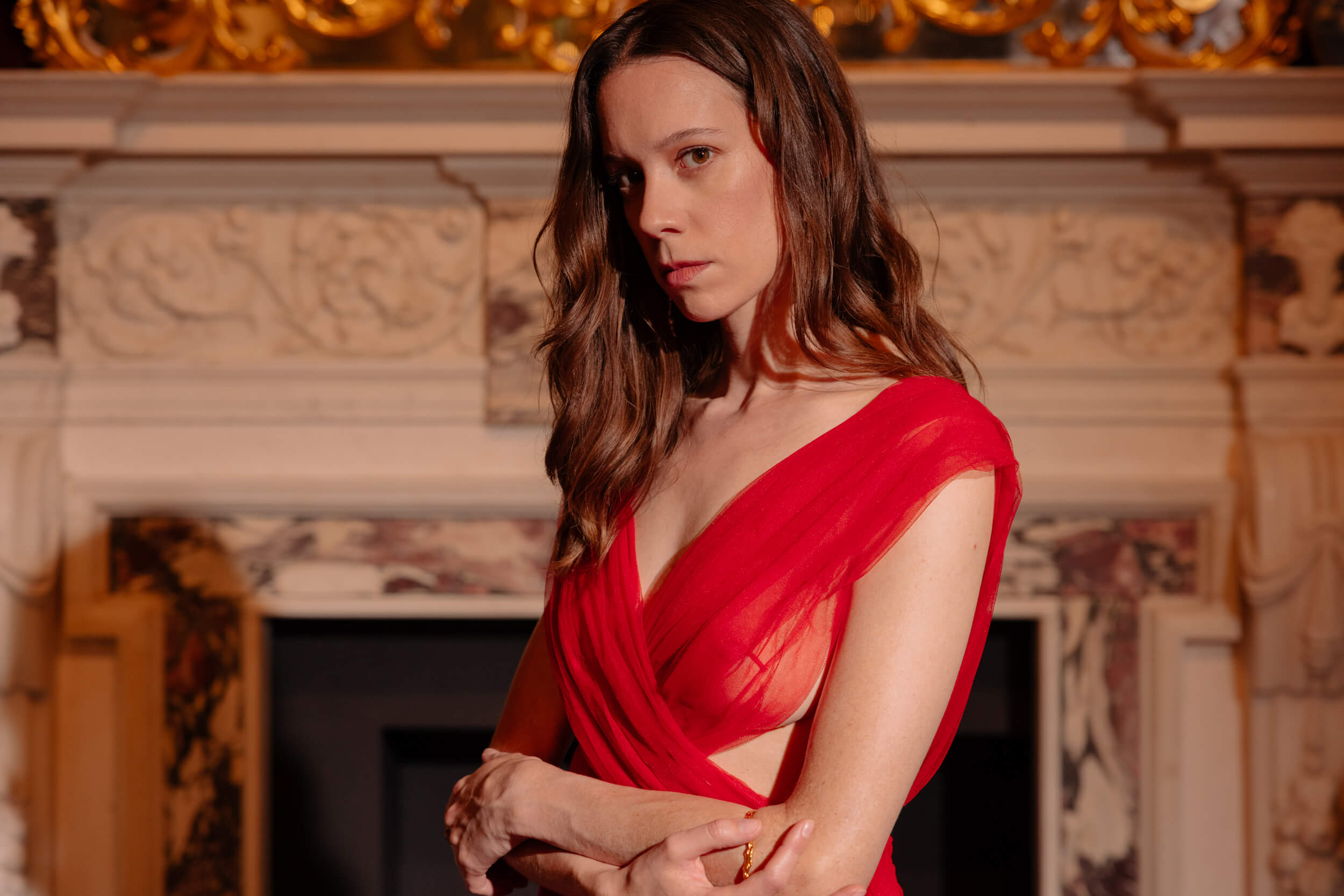
I’ve just finished binge-watching “Under the Banner of Heaven”, it was brilliant, amazing. That’s my favorite genre, so watching it in one-day time was not such a big deal to me; however, I cried, I felt angry, a roller-coaster of emotions all day, and the day after because I’m very emotional. How was the journey for you, on the other hand? You said you spent 6-month filming…
Yeah! It was a long time and a long time to be exploring something so huge and really dark material, as the show is based on a true story, so we all know what happens. But often, I think, when you’re shooting something that’s really bleak and difficult, you actually end up having a lot of fun, to balance, you’re not always in that darkness. You can find a lot of joy because you know you have these intense days or scenes where it’s really hard, but for me, it’s important to leave that behind and find joyful things to do when you’re not inhabiting that world. And I think because I read the book, I knew what I was in for.
Actually, I didn’t read the book until I was told about the project and offered a tape audition – then, I tried to read it really quickly, to start to understand what the situation is about and the fundamentalist side of the Mormon religion, which I didn’t know anything about.
That’s when I started to realize how and what Lance [Dustin Lance Black] wanted to do, in the sense that he wanted to describe Mormonism as well and use the historical aspect of the religion, and that was how he was going to adapt it.
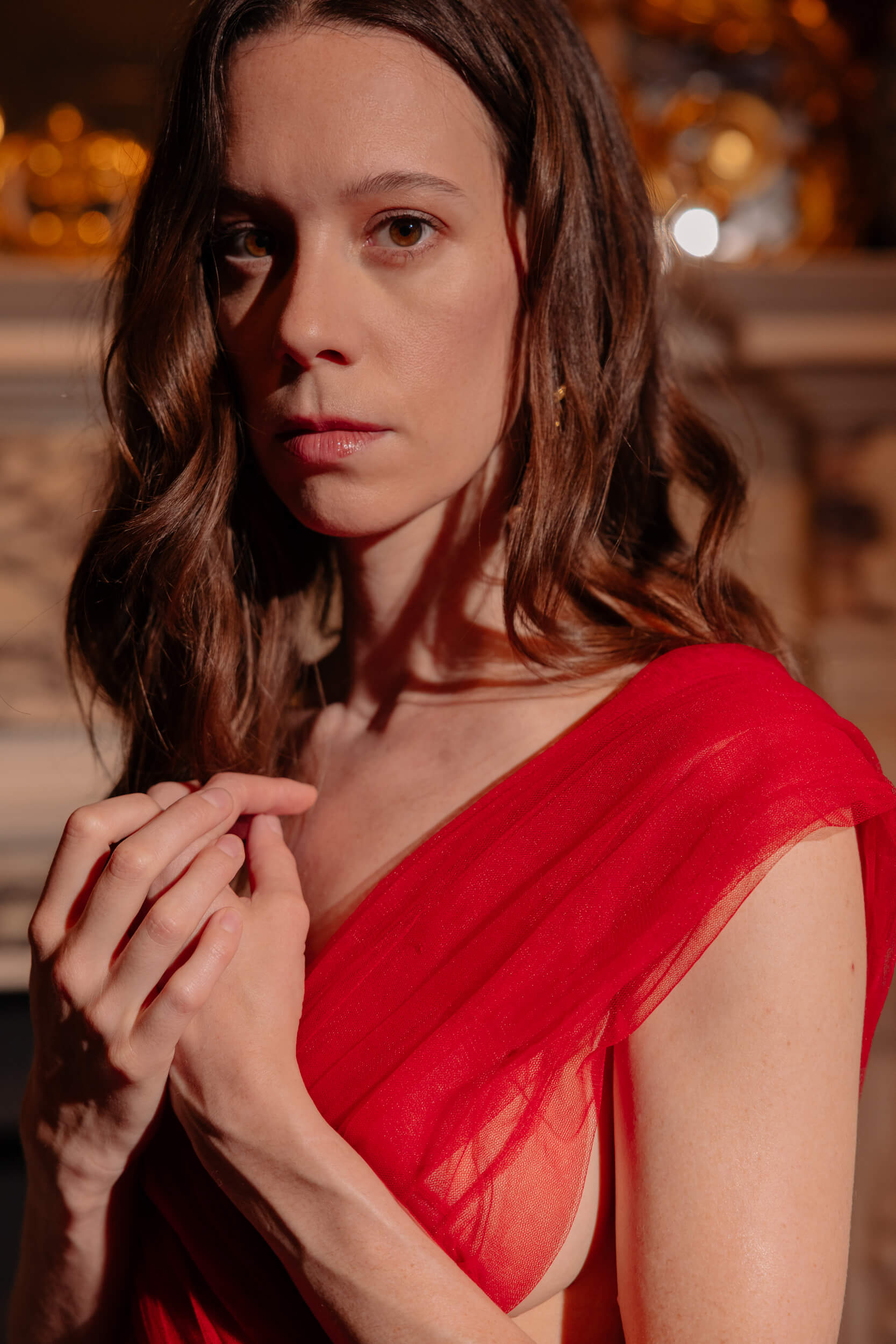
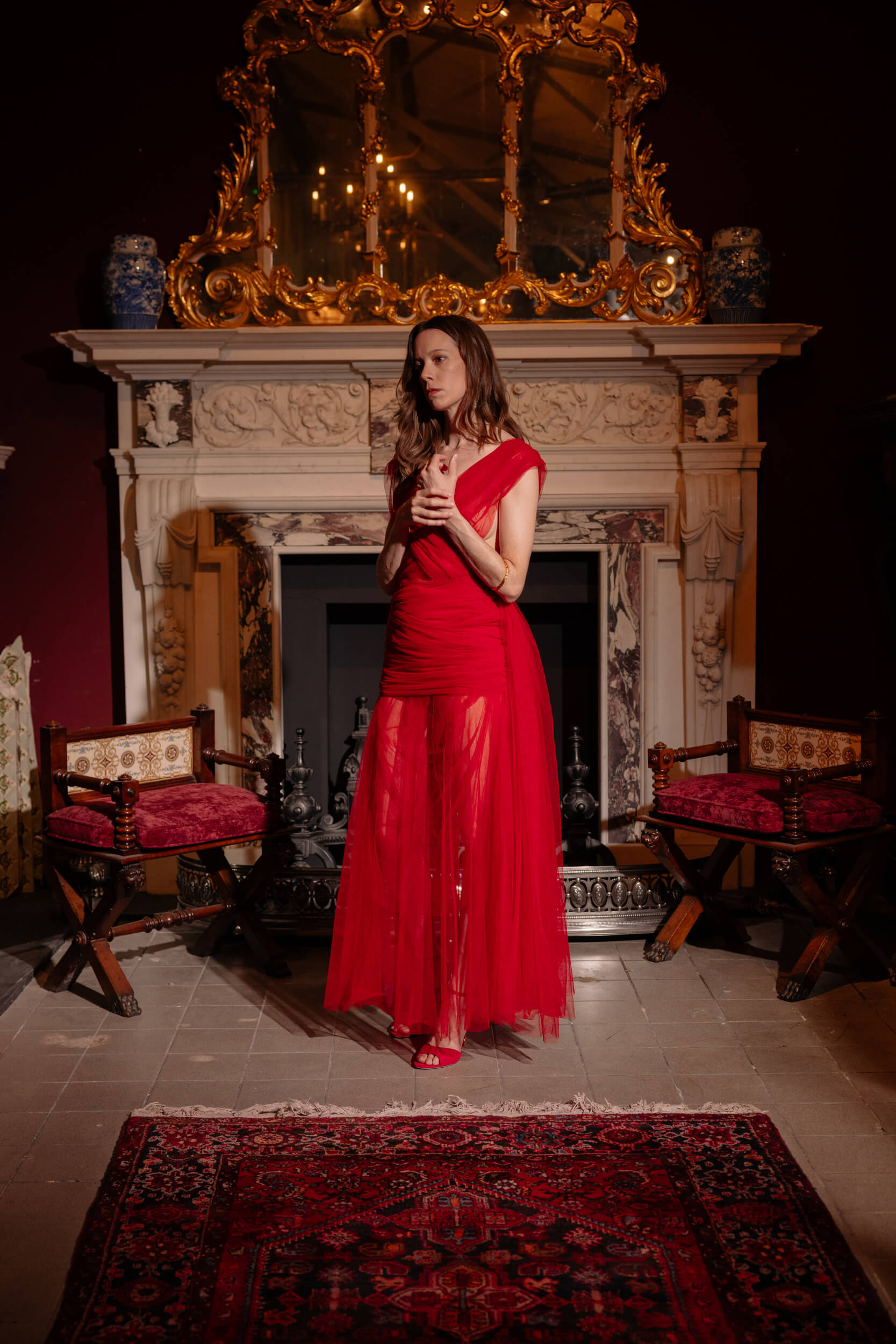
I was shocked because, as an Italian person, I didn’t know how much the Mormon reality and culture are present in Utah. I knew about Mormons in general, but not the fundamentalist aspect of that religion. What was your first reaction when you read the book or script?
Like you, I only knew about the conventional version of Mormonism, and “The Book of Mormon”, and I’d seen some documentaries, so I had an idea, but I didn’t know about the fundamentalist stuff. When I read the book, it made me really angry, especially the way in which the polygamy is a part of fundamentalism and what it does for women, and how the religion, broadly speaking, treats women. It’s very problematic and it’s difficult to understand these girls who were incredibly young and had no choice, they were put into situations where they could potentially be marrying family members. They’re people living completely off-grid and they’ve never known anything different.
Reading about it made me angry also because, in the book, Jon Krakauer doesn’t really hide his feelings about it, so you kind of absorb his point of view, as well, but it doesn’t feel biased at the same time, which is such a skill. But it’s pretty dark, and I think the women in the show all knew it was going to be difficult, primarily because, in order to portray religion, women don’t have much to do or say that isn’t serving their priesthood holder men. And we wondered, “Portraying that is going to feel depressing? Am I going to feel like I don’t have a voice?”. So, we were keen on making sure not to allow that to affect how we felt on the set and talk about stuff, we could still have fun and be ourselves, and remember that it’s not real life. Even though we’re talking about patriarchy all the time, so it is contemporary in many ways.
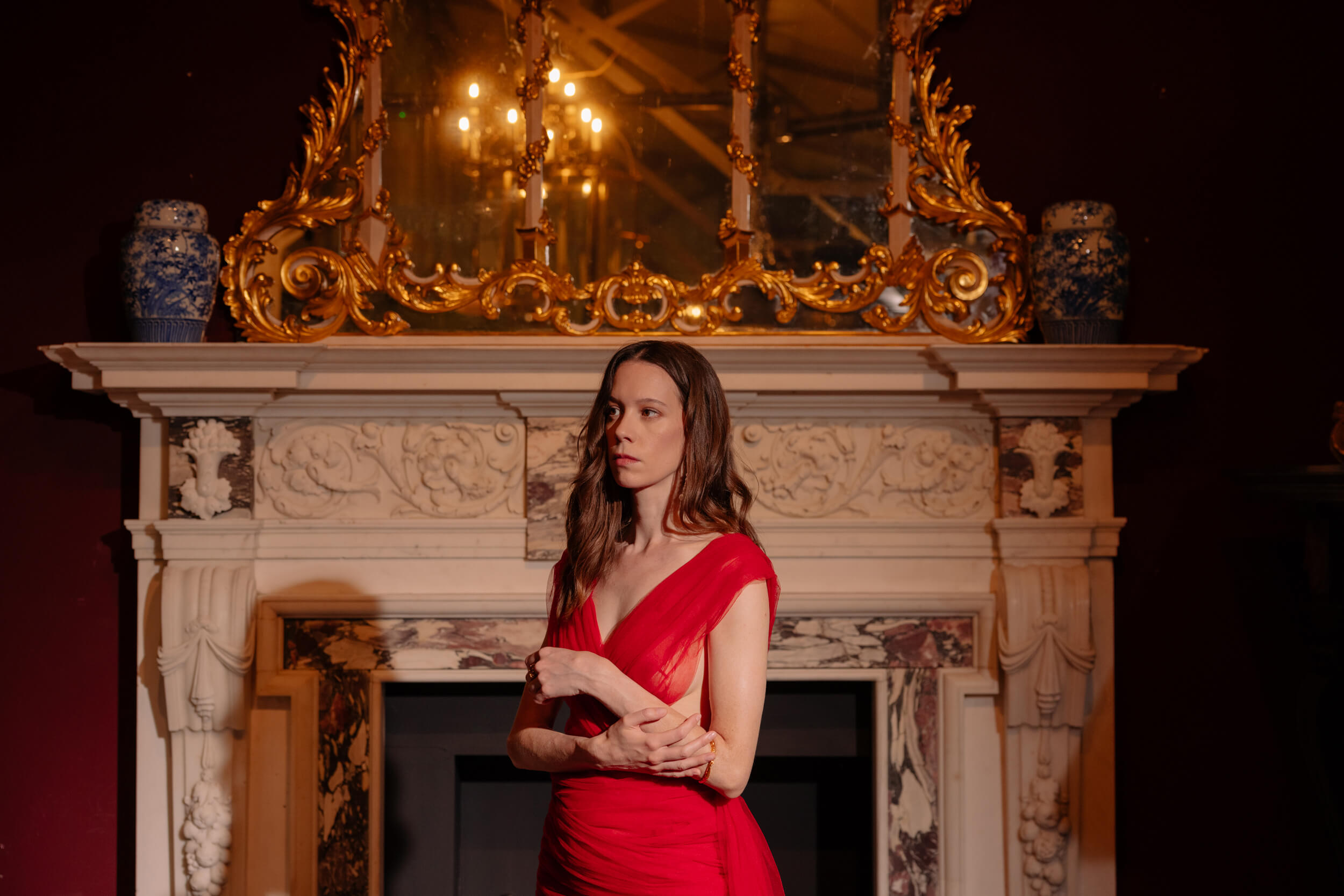
“Portraying that is going to feel depressing? Am I going to feel like I don’t have a voice?”
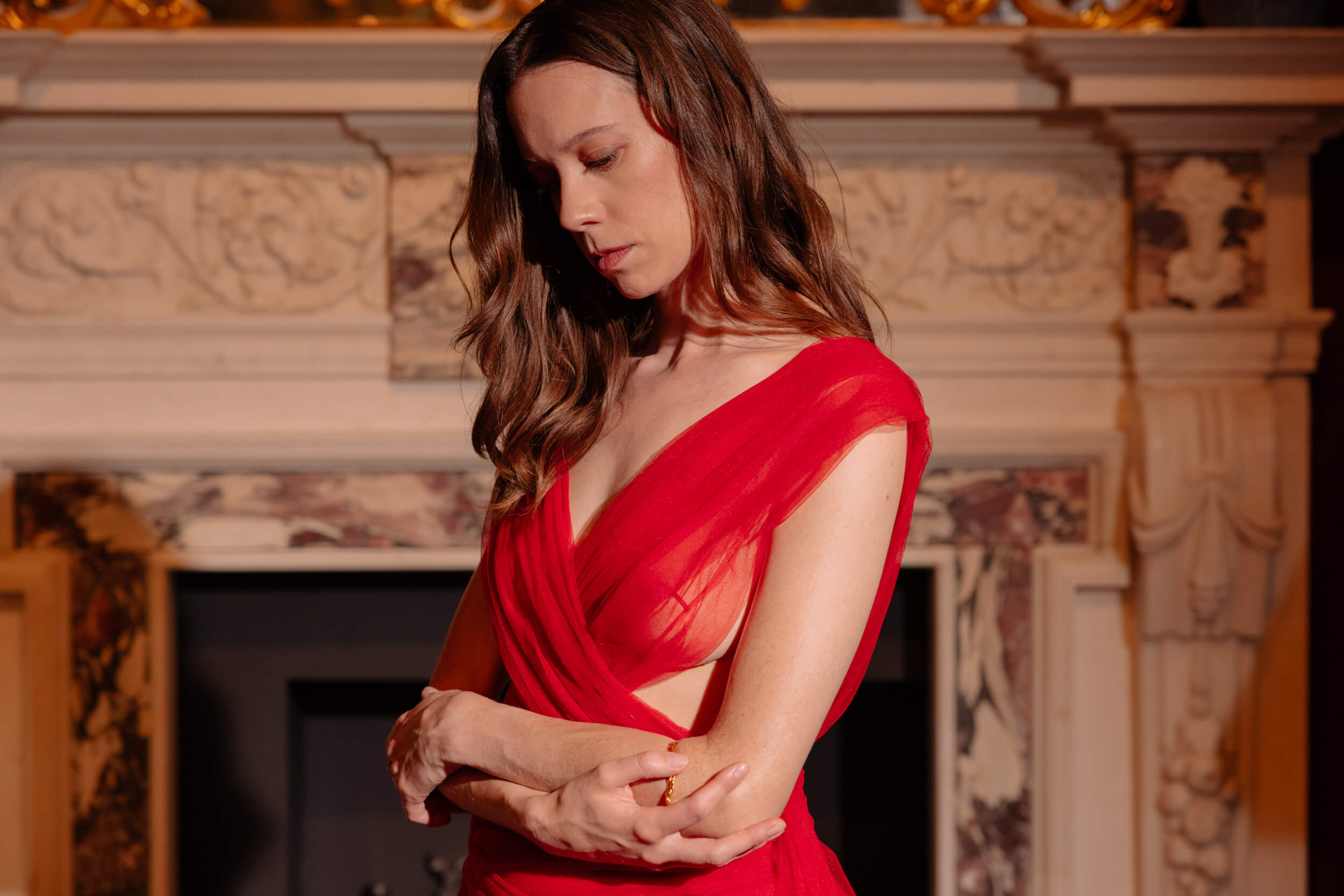
Your character, in the beginning, seems very fragile and anxious, but, at the same time, she does very powerful things, she’s brave. What was it like for you to enter this role and portray this duality?
On the page, I could see that this was a character who doesn’t really know who she is.
To some extent, she’s only able to understand herself through other people. She’s a seeker, she’s left Scotland, coming from a very Catholic upbringing, she has two children from a previous marriage of which we don’t know much. So, you’re already building a picture of someone who’s probably been pushed out of their community, or there’s a lot of shame in her background, potentially, there’s some issue. She’s gone from Catholicism to Mormonism, so it’s a situation where you think, “Okay, you’re fresh, you don’t have to atone for your sins”, but the religion treats you like: it’s okay, you’re clean, it doesn’t matter what happened to you before, you’ve done terrible things, by the way, but don’t worry about it [laughs]. So, she’s jumped out of the frying pan into the fire, but she’s still confused, and it’s quite a big move.
I was talking to a specialist, who’s a Mormon who’s helped us with dialect, and she said that to move from another country off your own decision – as she was infatuated with Dan and followed him – is really extreme. I wondered, “What is she thinking, how did that happen? It’s not like now, she didn’t just go on the Internet and book a flight”. So, there’s something in her that’s strongly seeking something.
Initially, she’s trying to fit into this family structure, she’s only trying to please her husband and make sense of it, and I think that that same fragility is present when she’s unable to cope and when she realizes that he wants to take her daughters from her. That fragility is where the strength comes somehow because she’s a very visceral character, she feels a lot, and it comes out of her. In the moment, when he wants her daughters, the strength comes out, but she still has no power in that situation, the only thing she can do is secretly break them out, but in that moment, she’s lost the battle, she’s completely paralyzed, her husband is so scary.
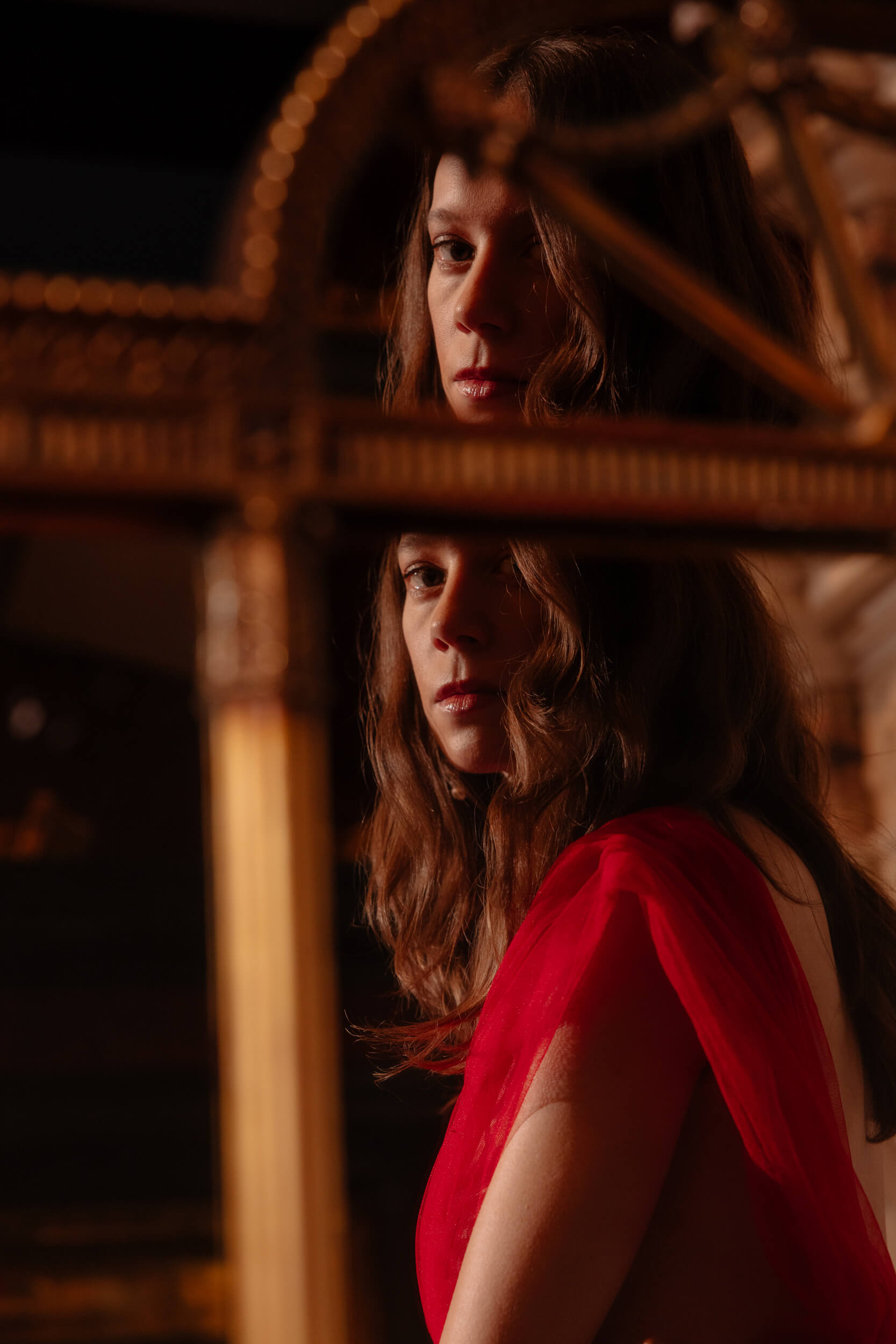
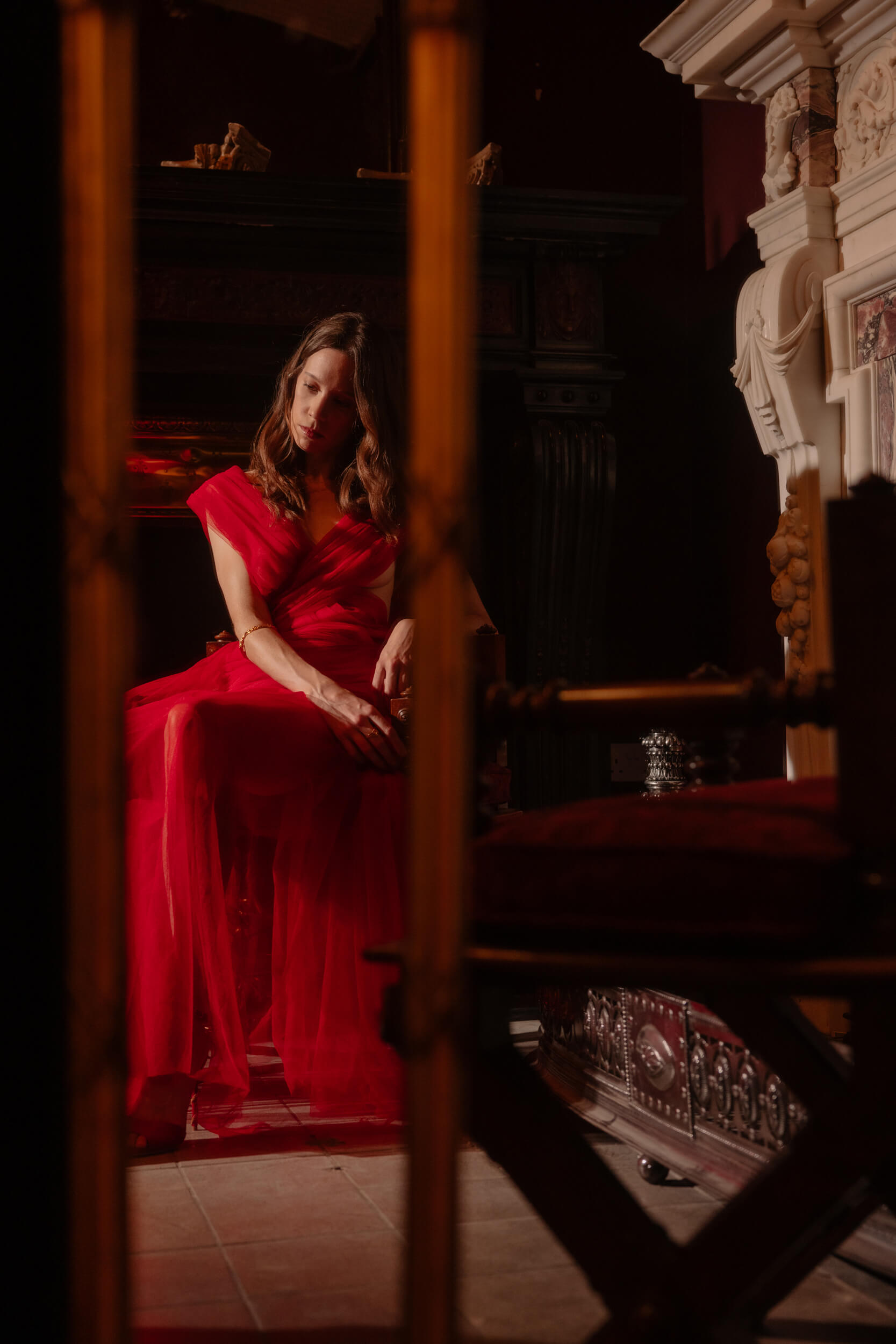
When it comes to your character, you never know what she’s going to do.
Matilda is basically sacred to her children, and she has decided that she’s going to stay, and that’s it – so, when Diana finds her, she’s feral, wild, and terrified – she’s gone through a lot and she’s not okay. I don’t know what happened in the end, I don’t know where she is now; obviously, it’s a fictionalized version of events.
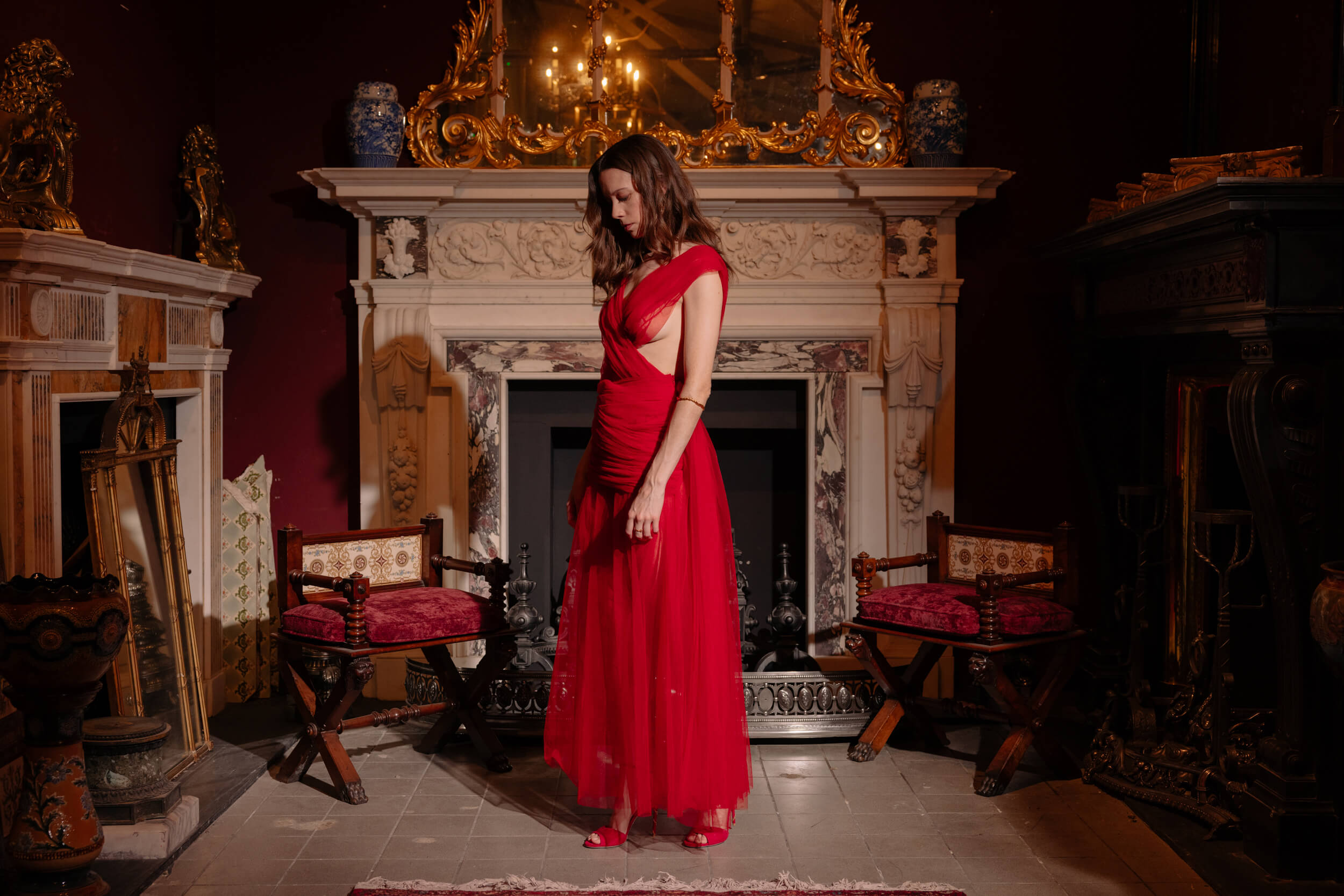
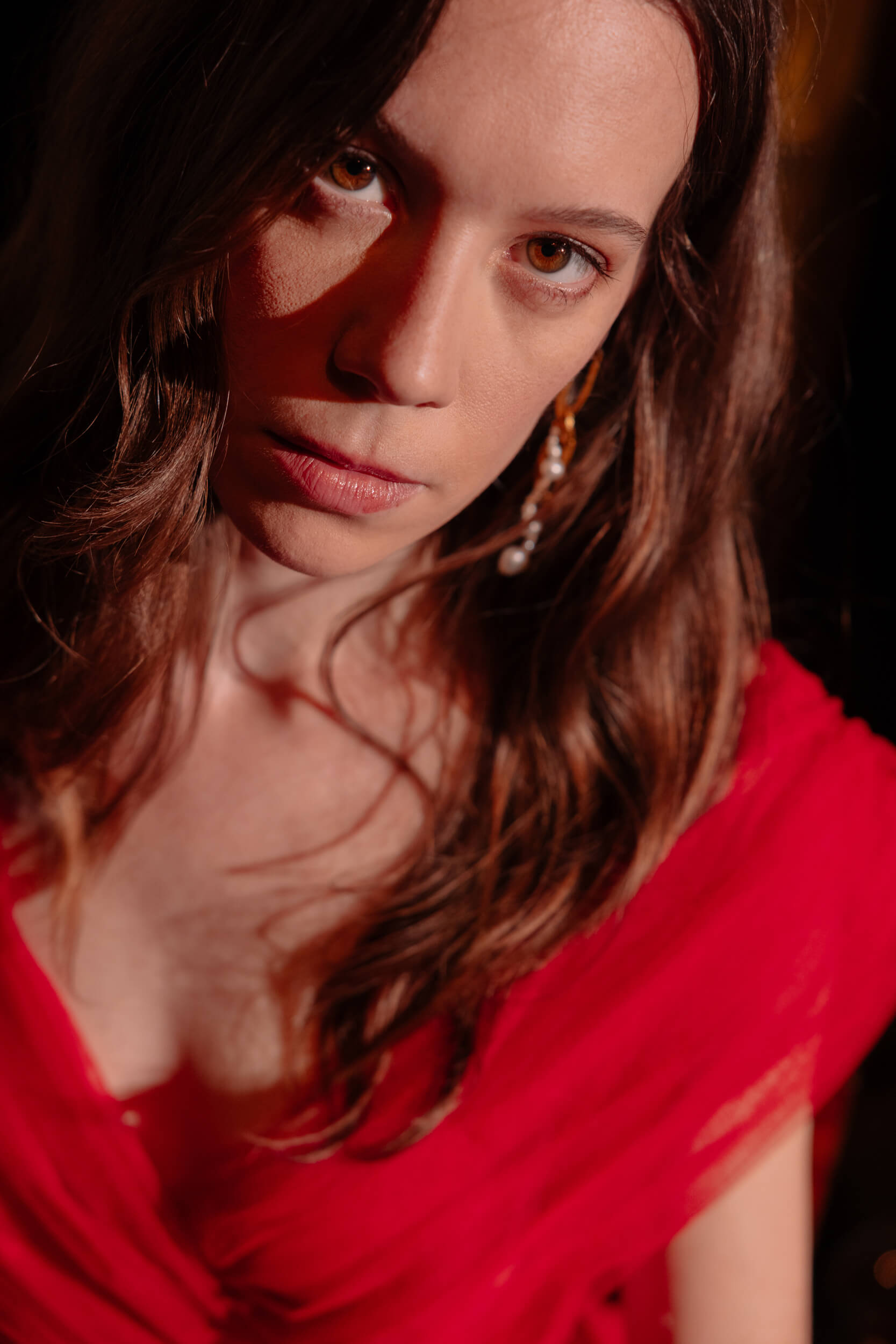
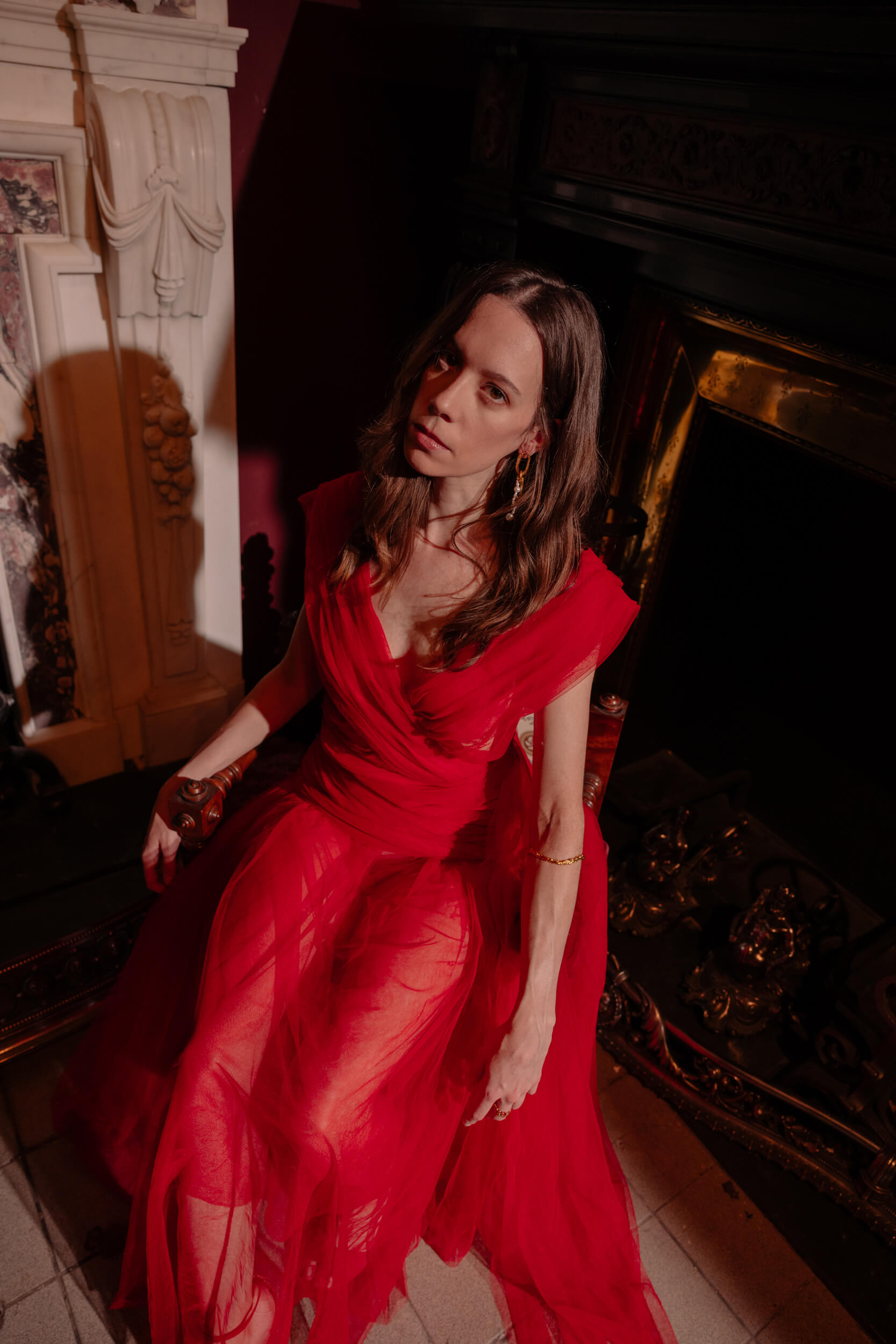
What was it like to build Matilda’s relationship with Dan on the screen?
It was great. Wyatt [Russell] and I talk about the fact that we didn’t really have many scenes where we see them in their marriage: we just see what they present to the world, and then we see how his obsession and his control build and how that affects her, and the control that he has over her. But there’s a lot of stuff happening on screen, and I think it was nice because, at the beginning of the series, you can see this big family unit, and they kept saying to me, “This is when they’re quite happy together” and I was like, “They’re NOT happy together! She’s a really damaged person who’s been taken advantage of, and he is, this is really dark.”
But they told me, “Yes, but it’s not coming out yet.”
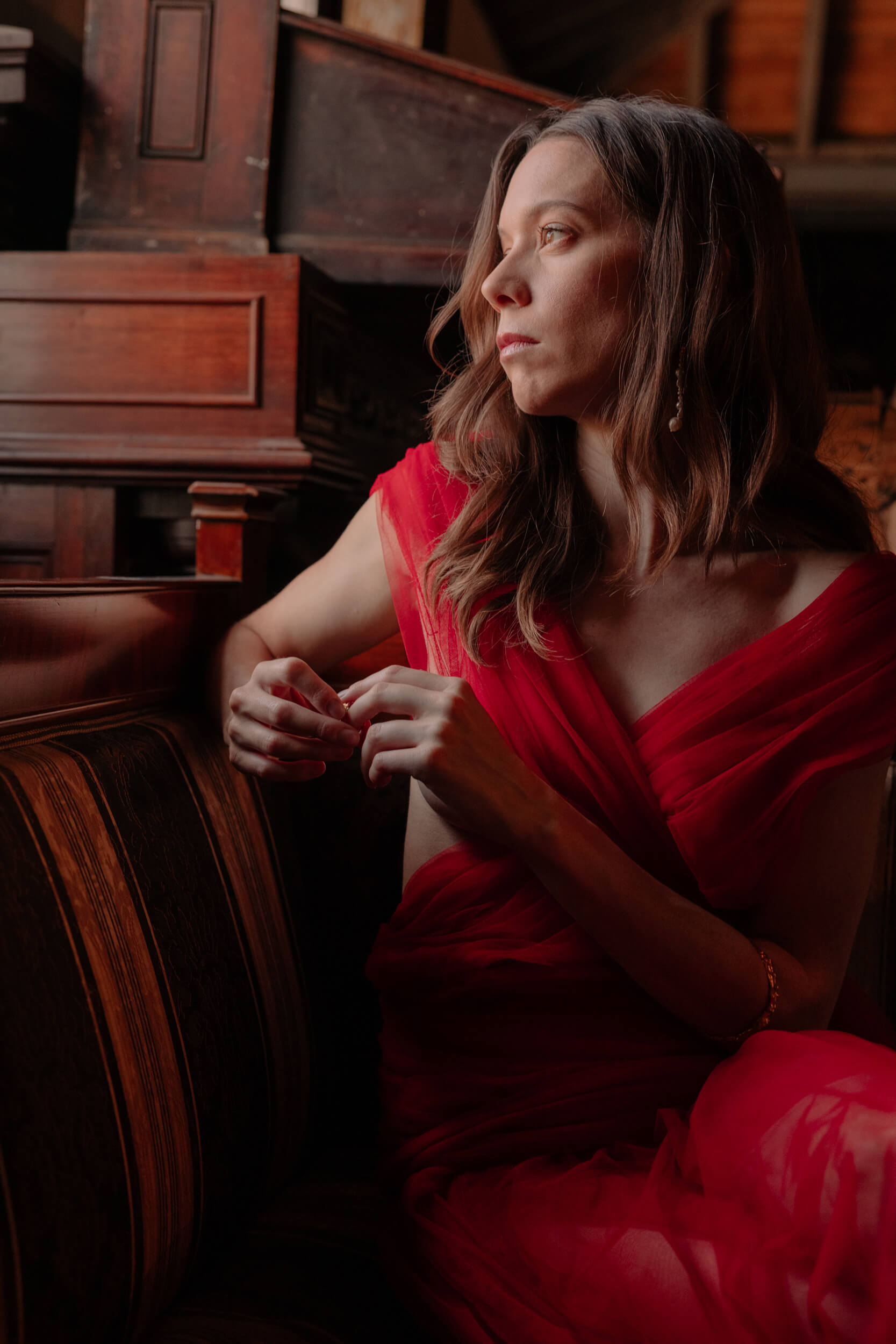
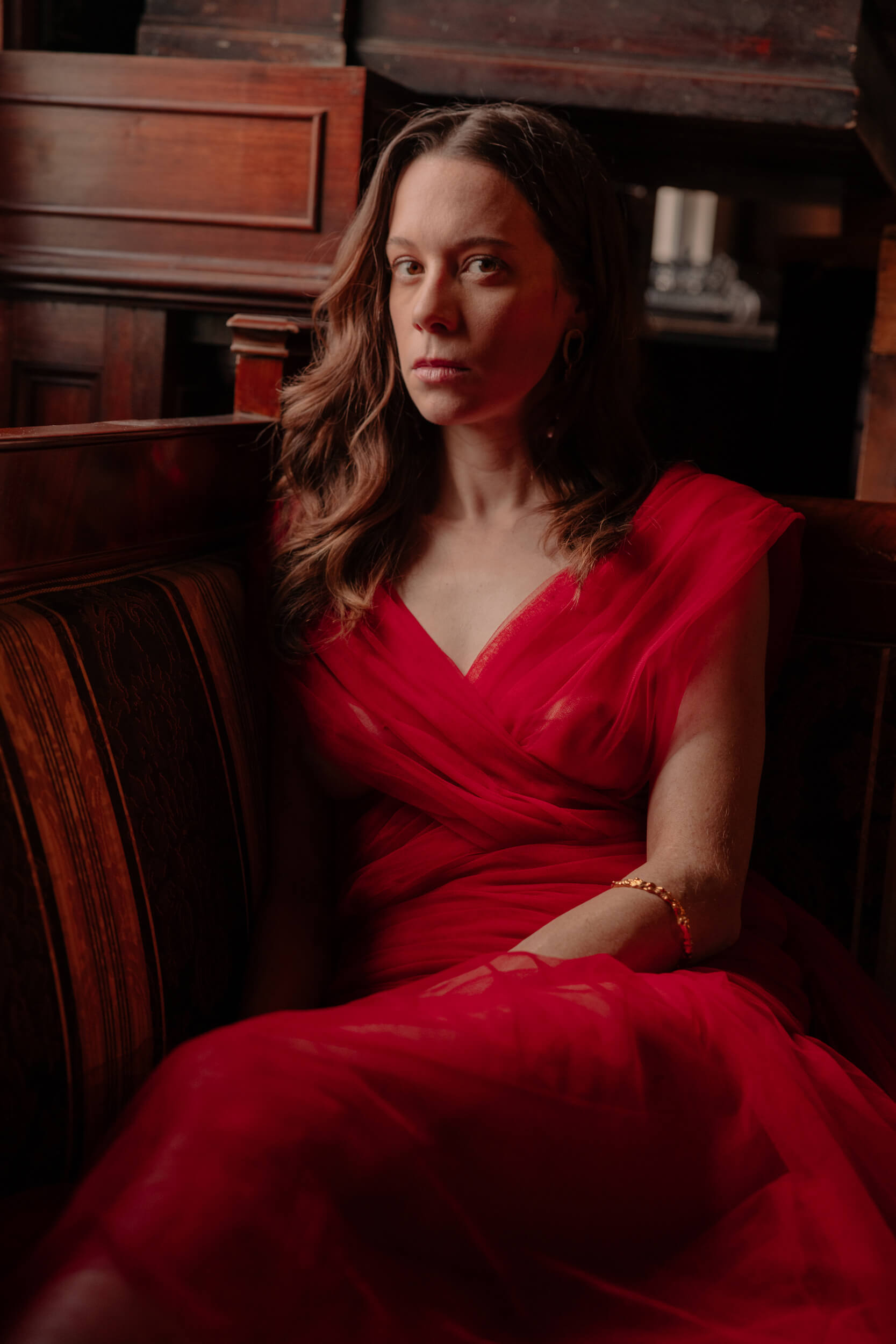
It’s thanks to your character that we understand, even from the first scenes where they are all together, that there’s something wrong.
There’s something weird in the way she talks about her relationship, too.
Especially in the scene with Brenda, when Matilda tells her about the sex her and Da have. Matilda is somebody who’s already full, she’s like a glass of water that’s about to tip over, so, for me, it was really important that that came out; in real life, when people are on edge and often when they’re most bright and sunny, it’s because they’re just trying to keep the balls in the air. This quality was something that I found very interesting to explore, and it also made me quite free on set to do things because Matilda’s always trying to cover it up, and she’s also scared that he will leave her all the time, from the very beginning, and that he never really wanted her in the first place. So, it just gets worse for her, really.
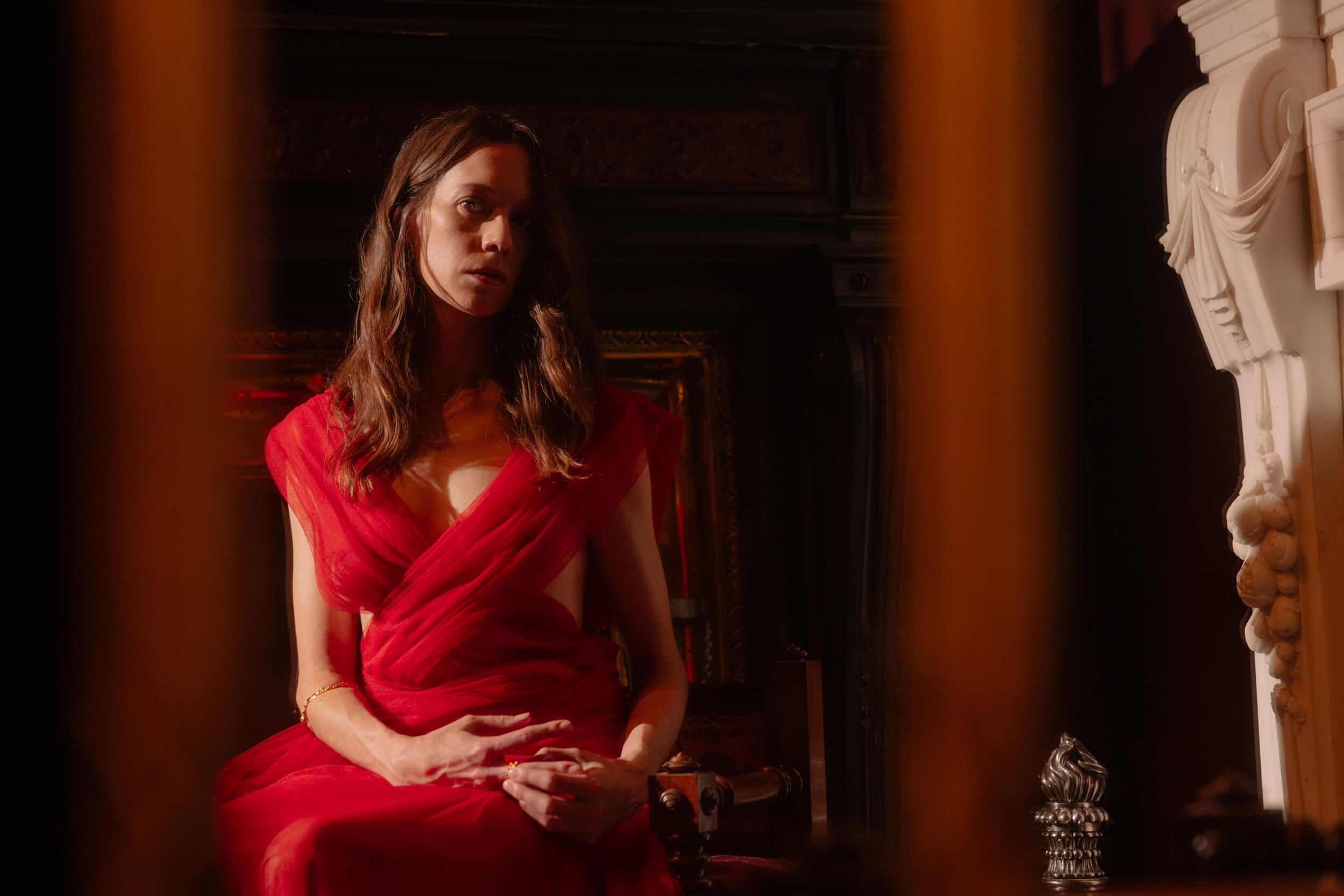
“Matilda is somebody who’s already full, she’s like a glass of water that’s about to tip over.”
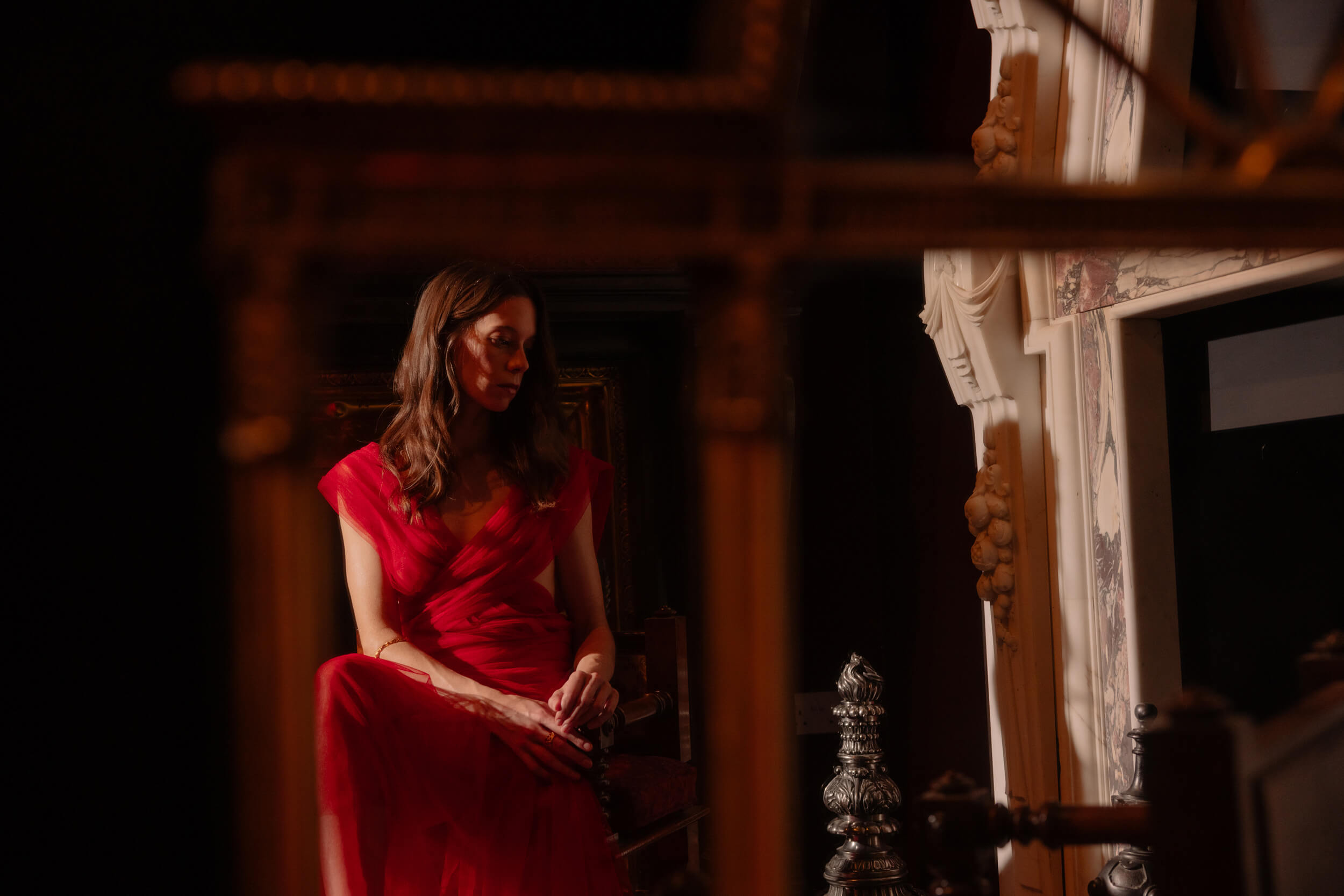
What makes you say “yes” to a project, in general?
I think it’s always about the writing and the intention behind the project: what are they trying to do?
With this one, I think, it was that it felt like an interesting project because I knew it had been in development for a very long time, and when something’s around for a very long time, when that happens it is because somebody really wants it to happen, they’re fighting to get their show made in one way or another. And then I knew that Lance’s background was Mormon, so he knows the religion from the inside out, and I thought it was going to be really interesting to explore.
Initially, when I had to audition for the project, I had no idea what the character of Matilda is, the scenes were really weird and strange. I had to do the audition tape really early in the morning with a friend who was filming in Greece, so we had to do it over a video link and record it, as we were in the middle of the pandemic. I had this moment when I woke up at 4 in the morning and thought, “I understand her, I know what it is”, I understood what was driving her. And then it just felt very simple, and often that’s when I know that’s something’s for me, as it feels really simple to me.
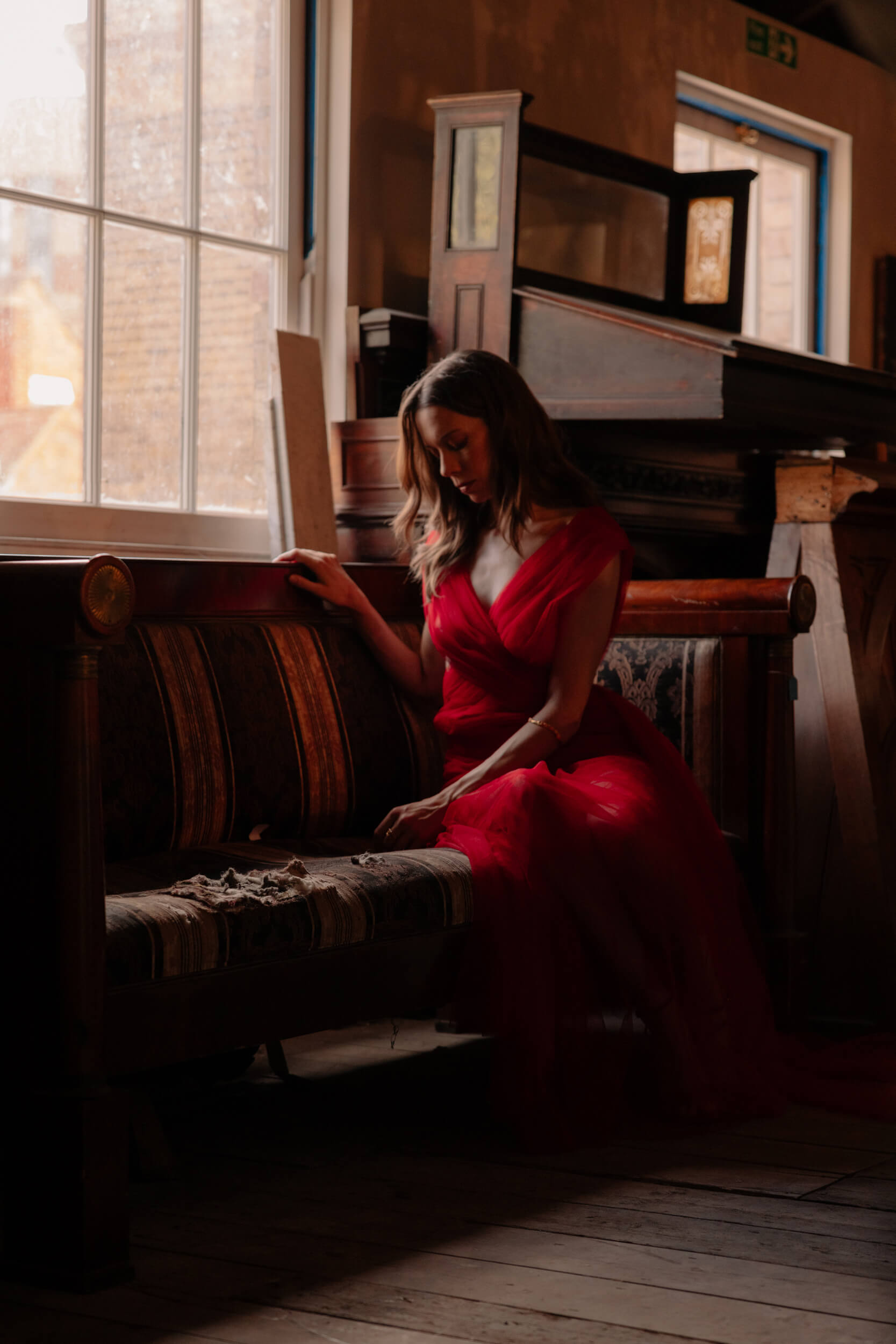
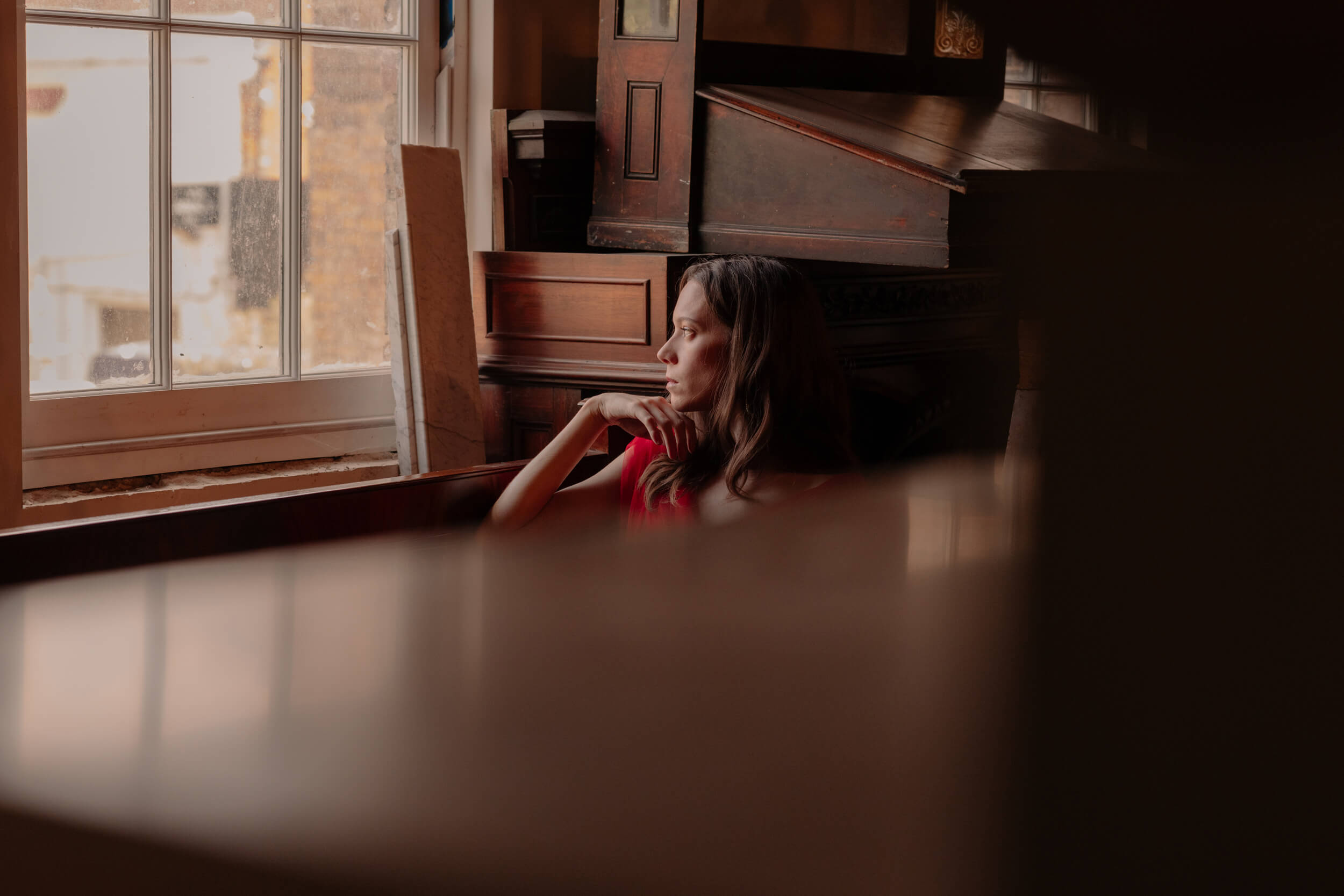
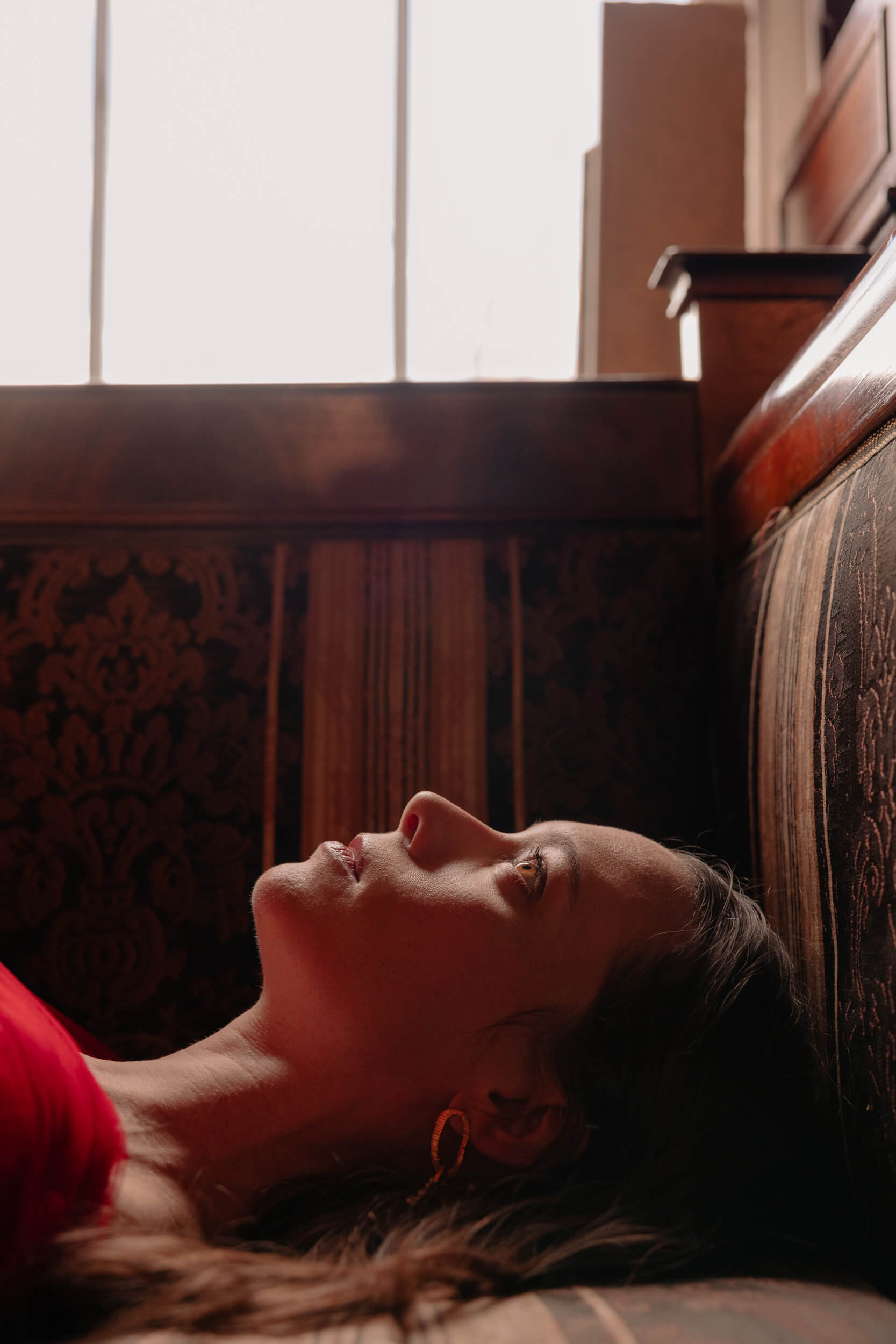
I also read that you’d like to direct…
Oh yeah, I think I would at some point, and I now feel confident to do it. I’ve never wanted to do anything other than act, but I think that now, I don’t know why but I suddenly have more of an interest in telling stories myself and looking at the world slightly differently.
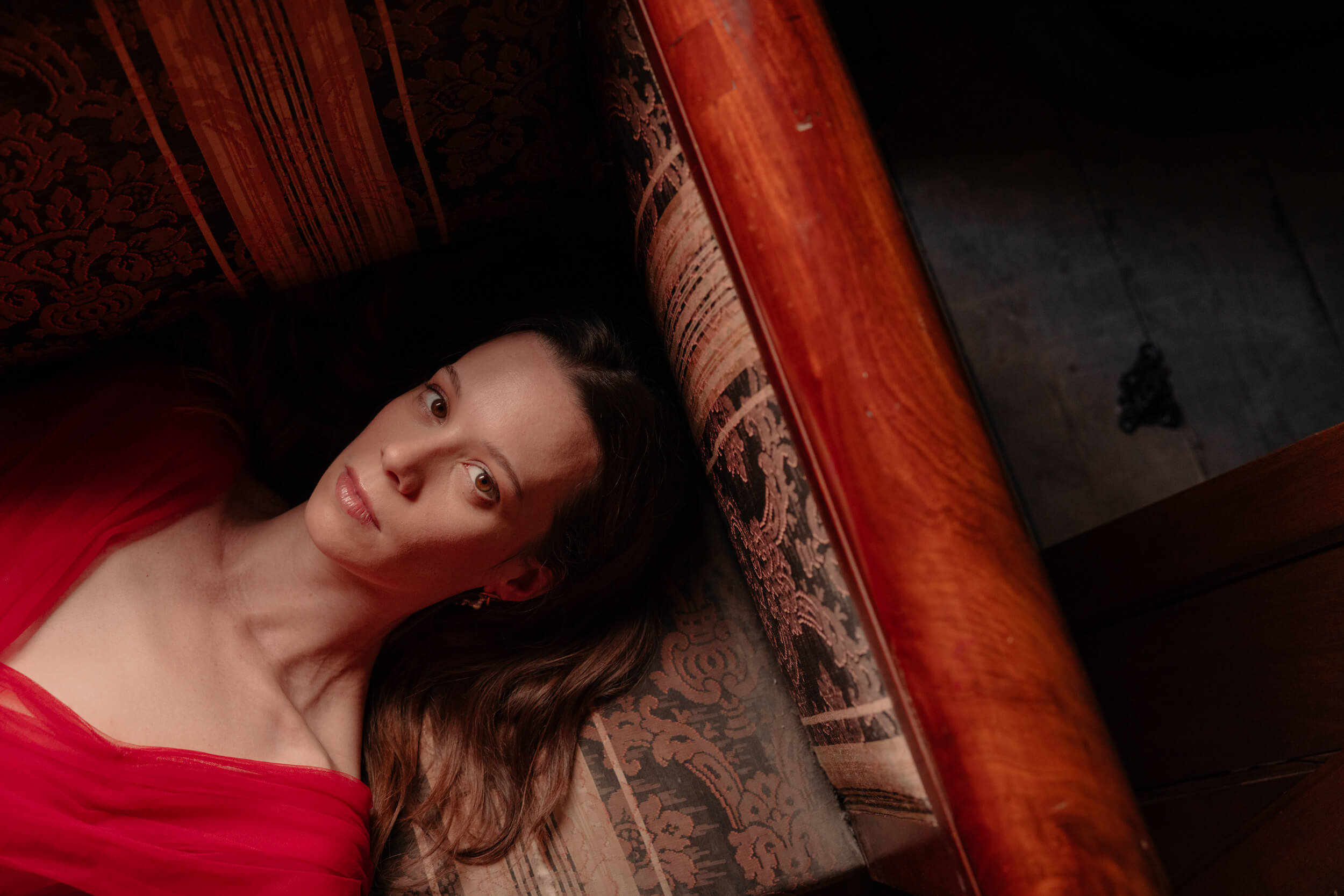
Are there any stories in particular that you would like to direct?
I feel like I’m always drawn to themes like a dysfunctional family. I love independent films, I love cinema and I’m drawn to projects where there’s a “small-scale eye” and I like working with cinematographers and finding a language and being creatively collaborative. It’s something that now I feel like I can do or can cope with, almost, because I feel like I can transfer how I work on set as an actor into that, whereas, before, I never really thought about it, or I just didn’t feel like I ever could.
But somehow something has changed.
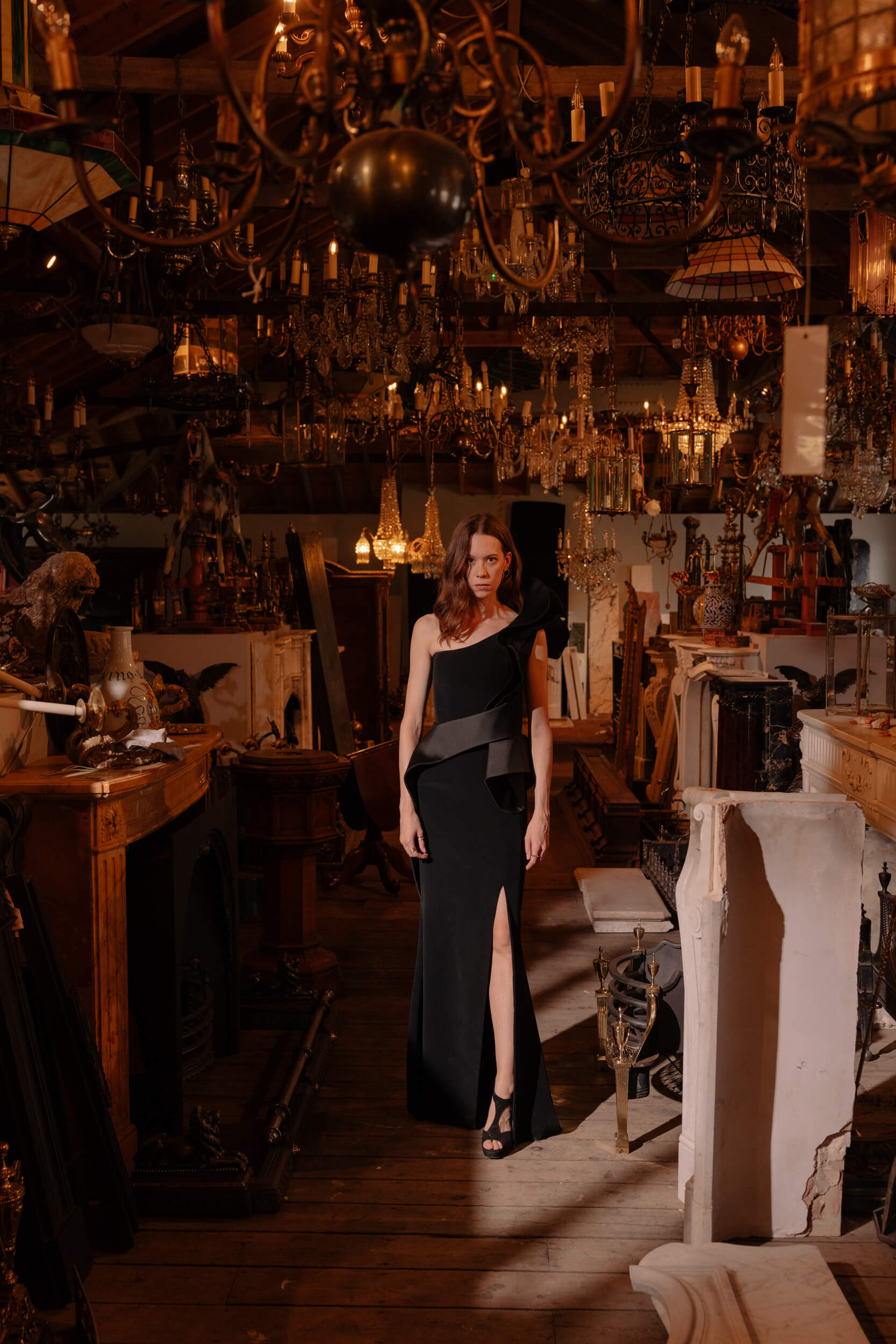
“I like working with cinematographers and finding a language and being creatively collaborative.”
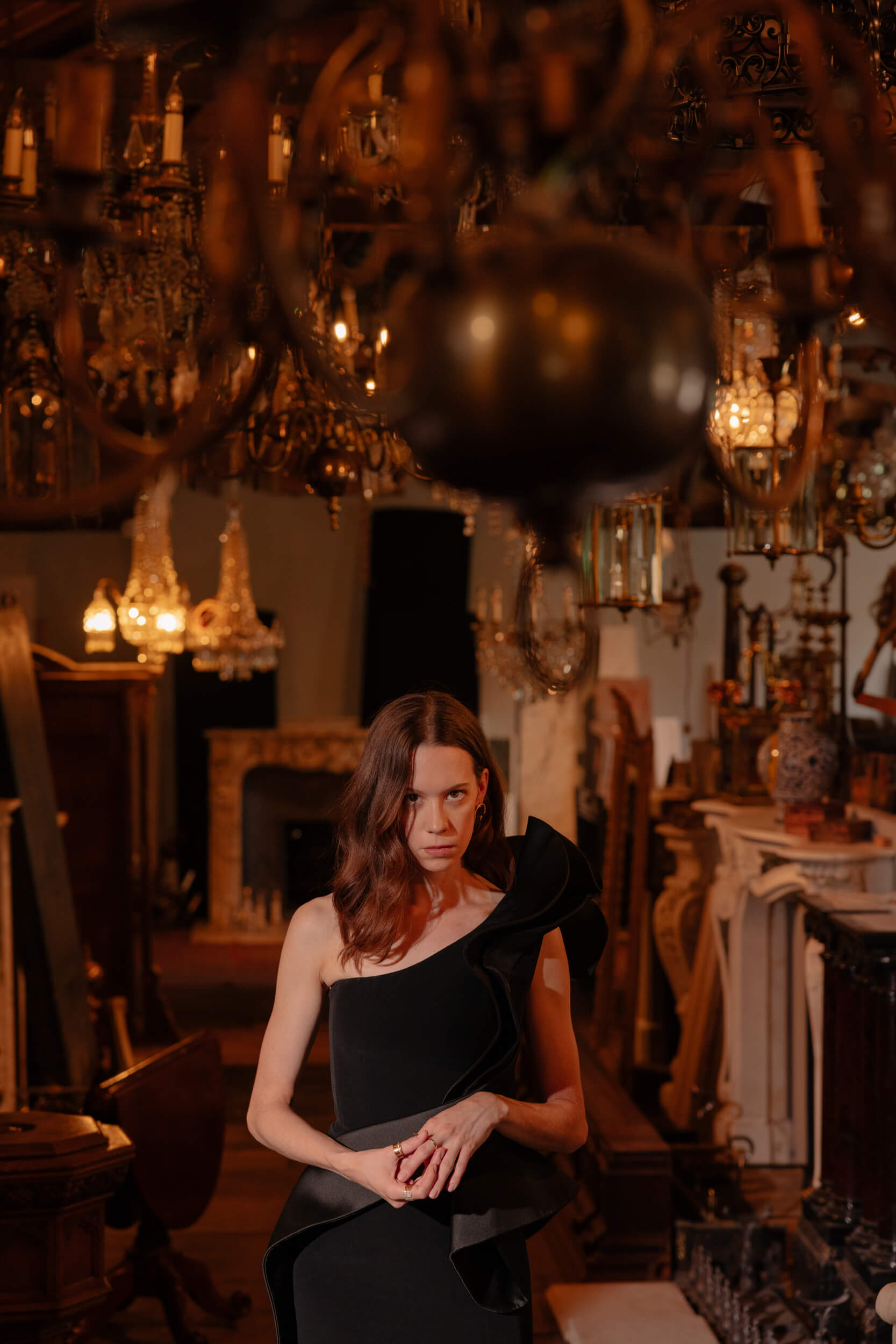
I think that with your work, and every role you play and every script you read, there is a chance that you discover something new about yourself. What was the latest thing you discovered about yourself?
I think I discovered, with Matilda, that sense of humor is weirdly very important. I kind of knew this, but Matilda, as a character, is quite funny and I didn’t want to make her comedic, but I wanted it to be somehow weird, and that unpredictability is what I mean by that. So, realizing that you can push that quite far and that as long as you’re telling the truth, that’s fine, I did use that; I’m not going to say I discovered I’m funny [laughs], but I discovered that the choices that you make, when people are listening and receiving them well, can be meaningful and I’ve got a lot of confidence from that, I discovered that my instincts are good.
I also discovered that sometimes it’s better not to talk about it so much when you’re working; some people like to talk about work, about how they’re going to do the scene and things like that, while sometimes I prefer just to show it because you waste a lot of energy just to explain your choices – you could have conversations about that, but the power of just trusting that you know and that you can have those kinds of chats but you don’t have to offer everything straight away, is the way of working that I really like. On both sides of the camera, I really like working in that way.
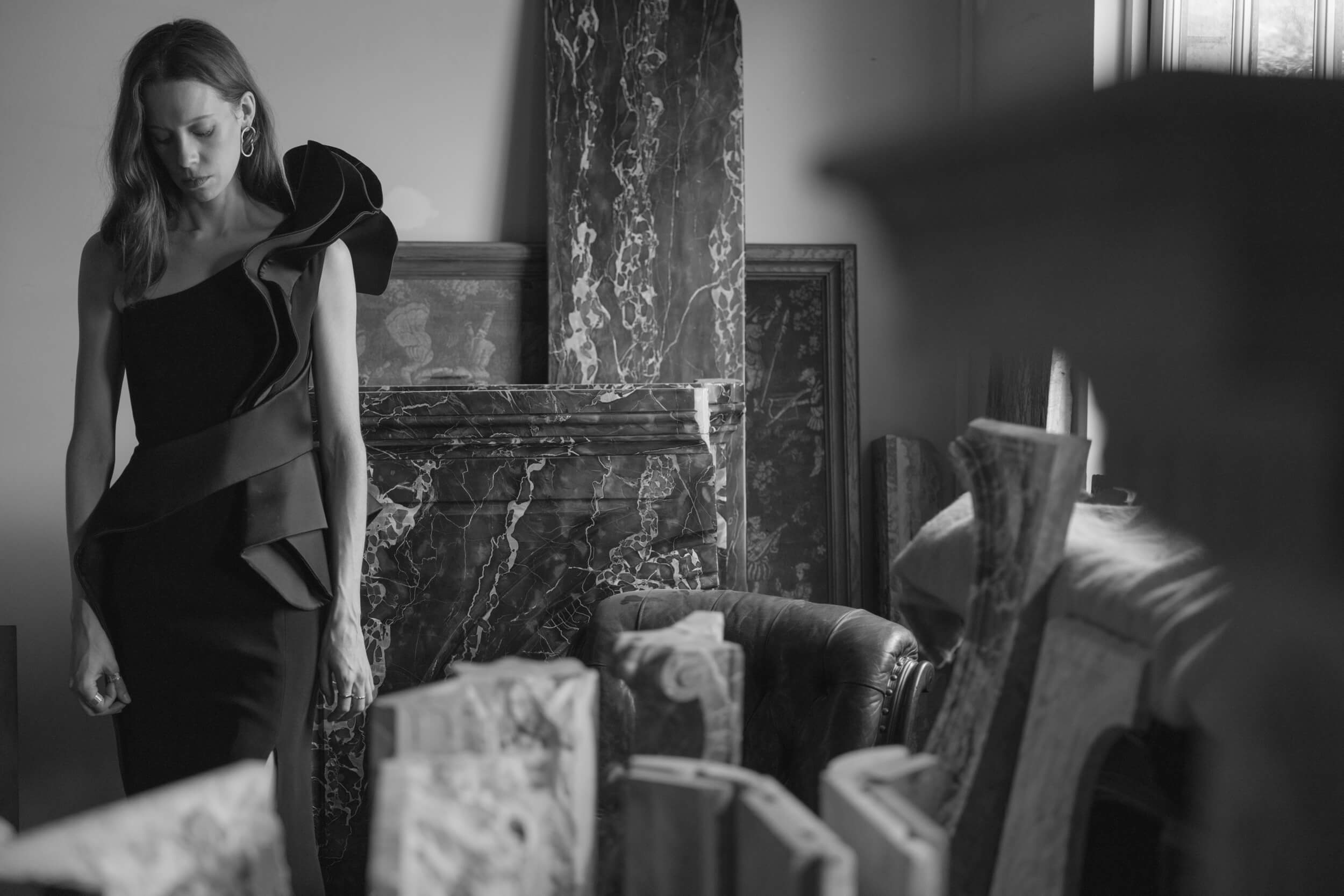
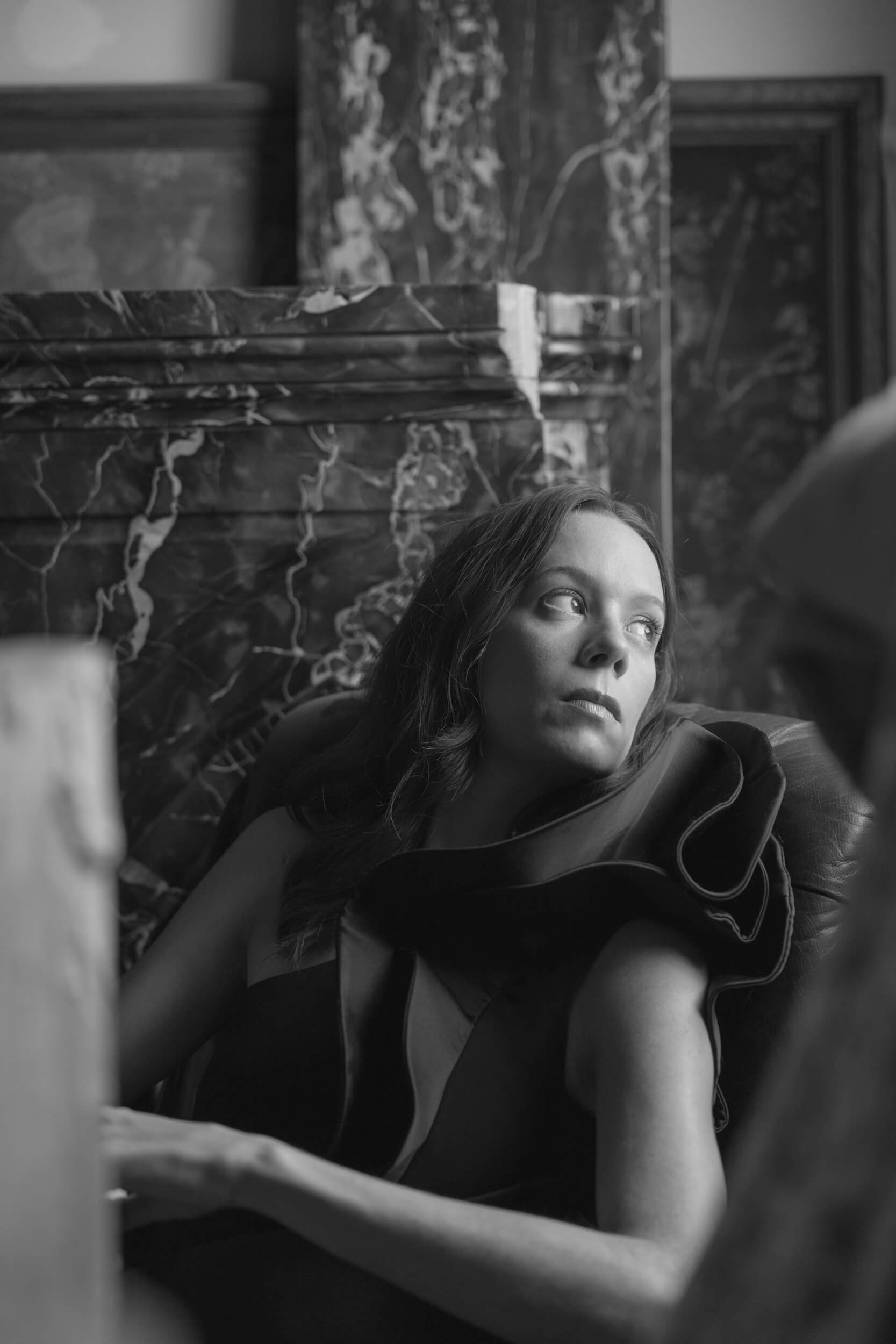
What was your best act of rebellion in your life?
I got a dog during lockdown… It doesn’t sound like an act of rebellion, but it is, in a way, because it got me thinking, “How am I going to make this work, if I get a job?”. But I just knew I had to do it, so it was slightly rebellious because it’s a new chapter in my life.
I think, also, deciding to be an actor in the first place required a lot of courage. People would always say, “It’s really difficult to do that, are you sure? Don’t you want to do this instead?”. Despite being rejected by all the avenues towards a particular job, I kept thinking, “I still want to do it, though.” So, I think, in a way, becoming an actor in the first place felt like a rebellious act.
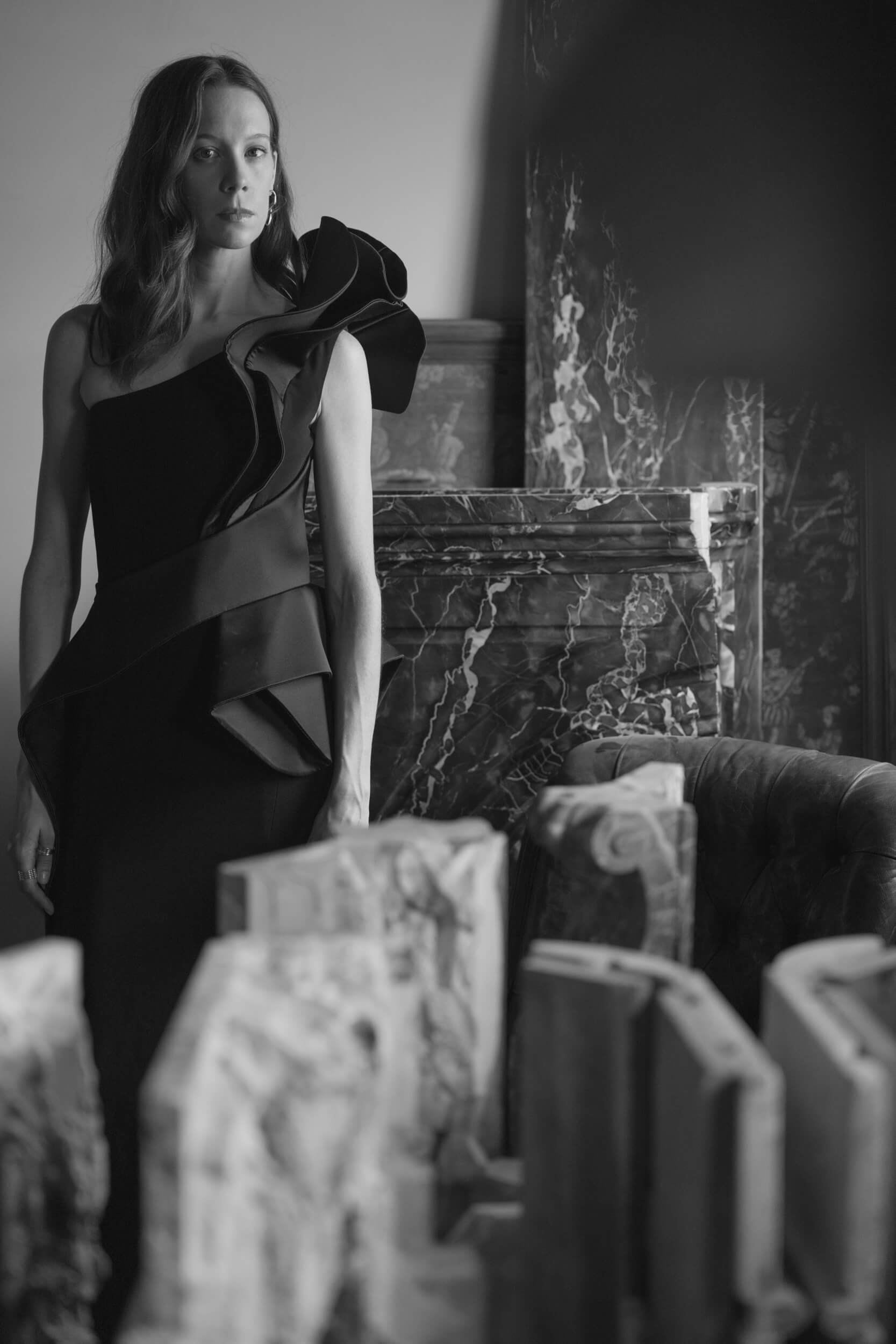
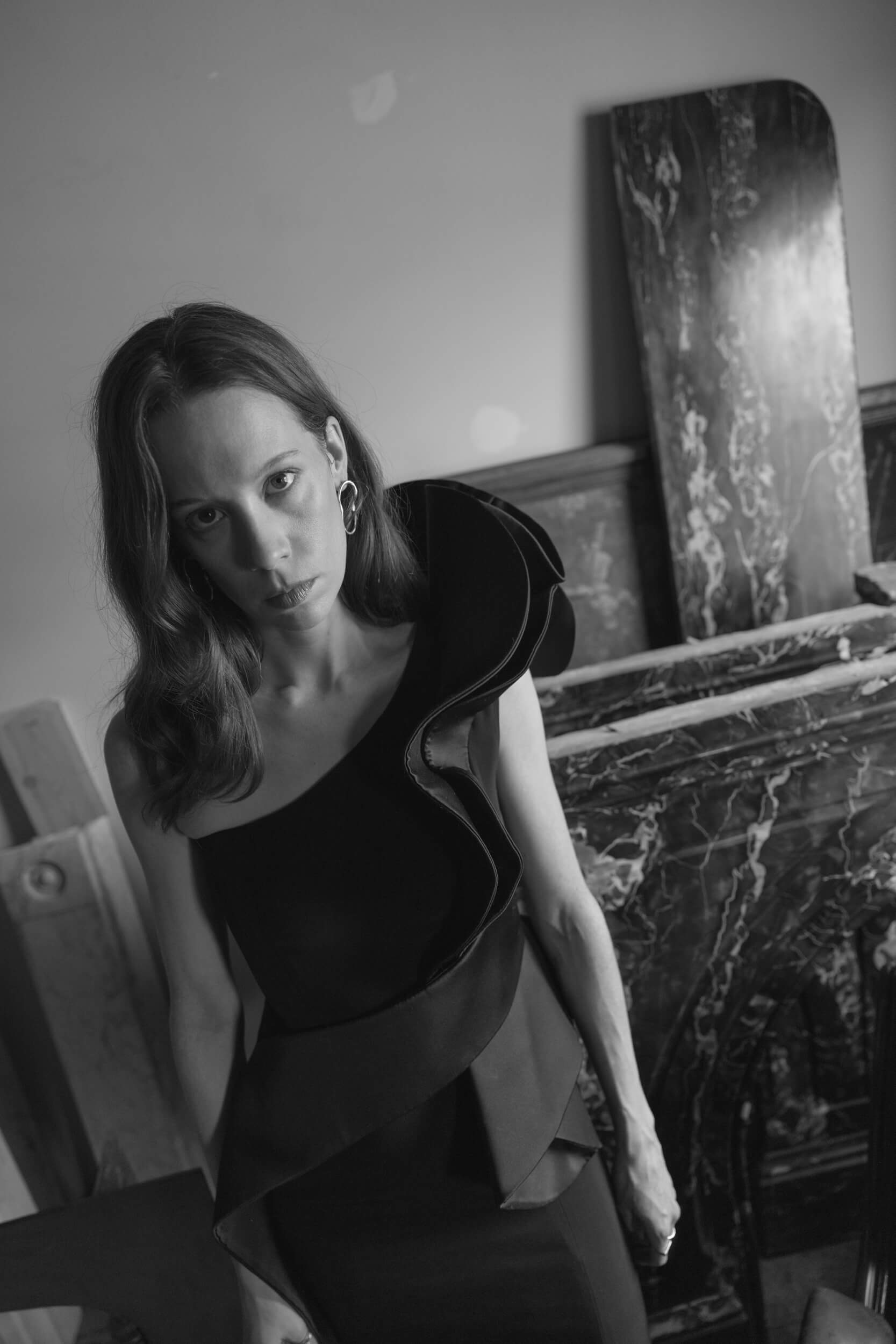
“…deciding to be an actor in the first place required a lot of courage.”
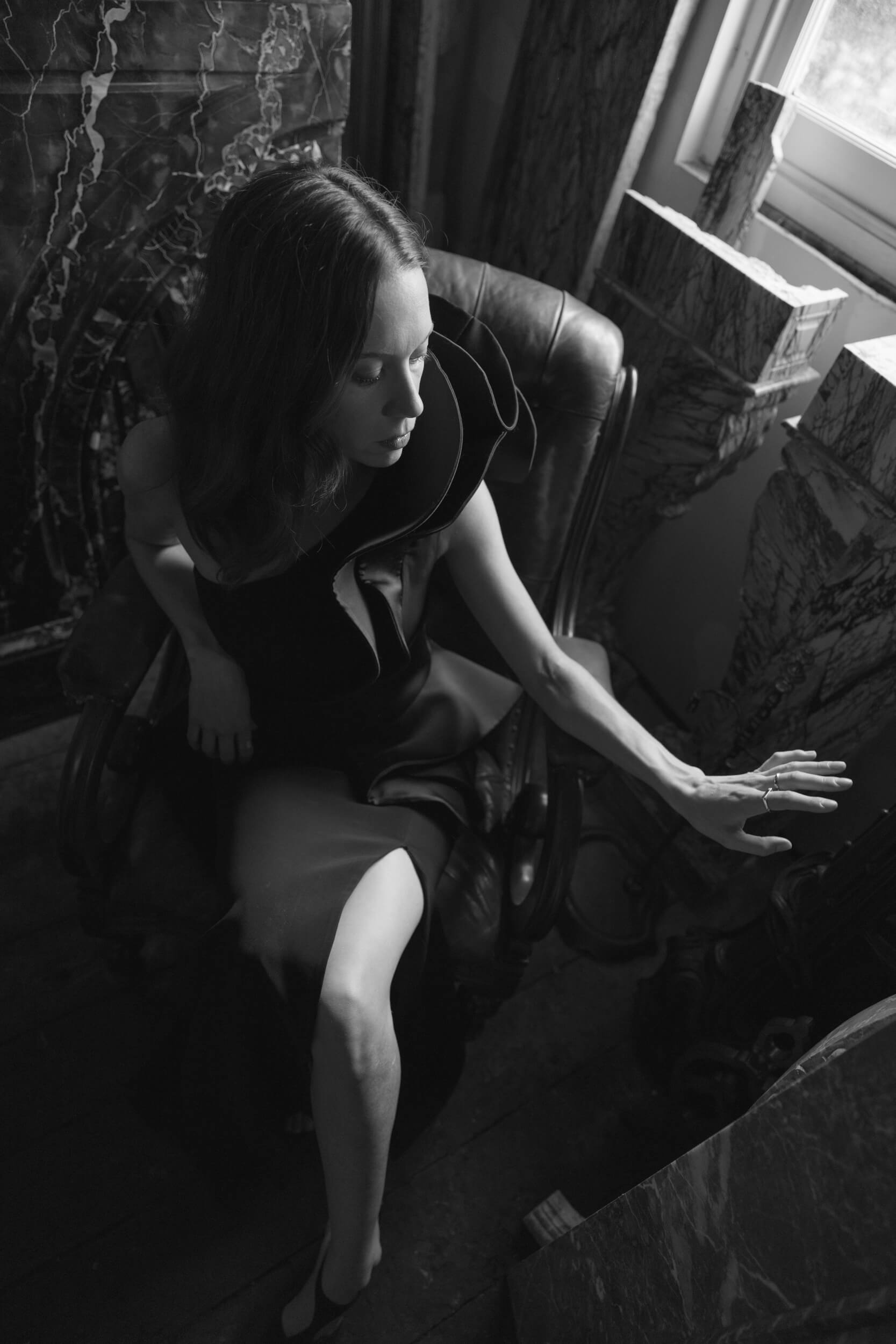
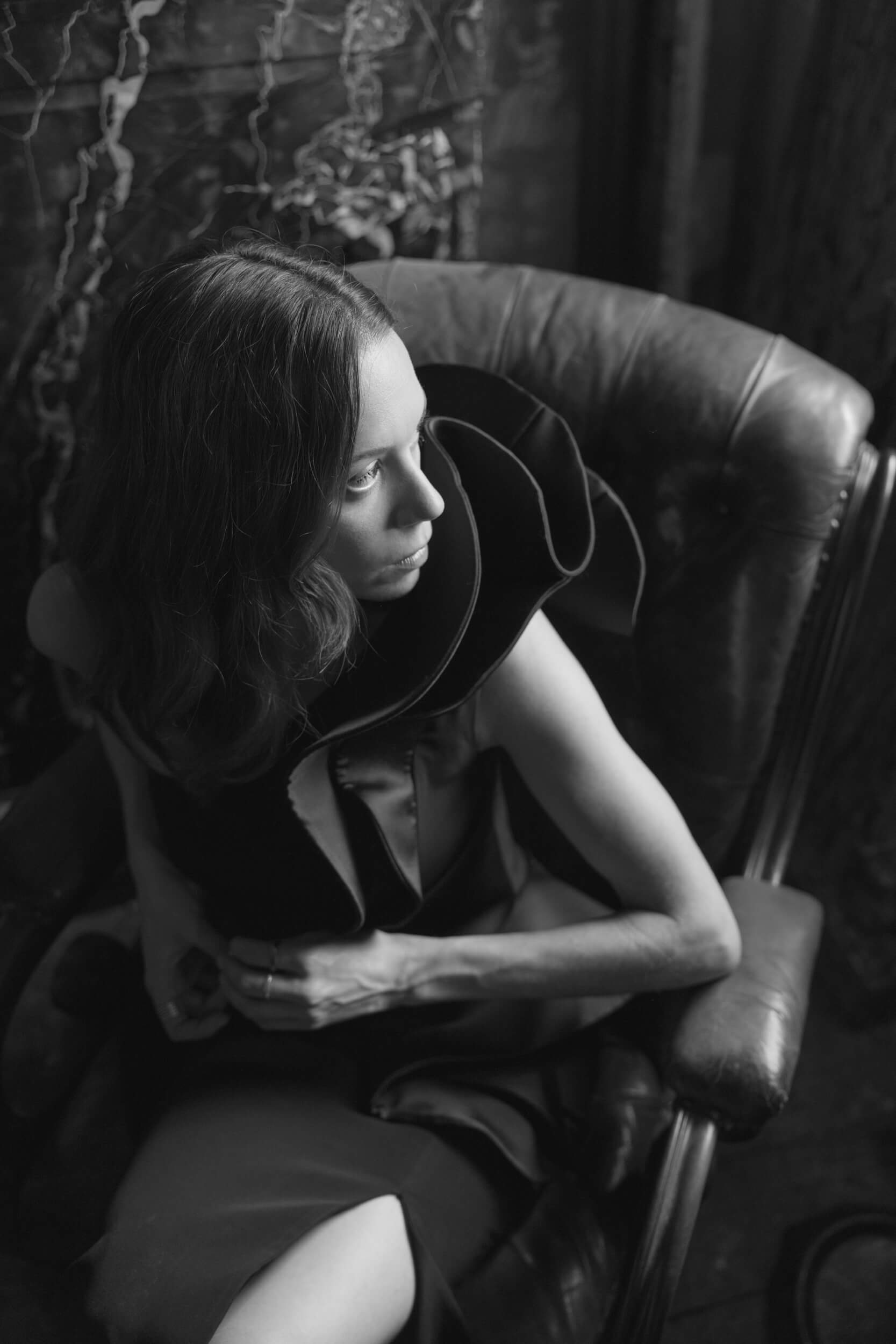
We can recognize you, the way you really are, within your career path and choices, indeed…
I think it’s also about choosing what you want to work on, but I think I’m getting better at understanding that you don’t just have to fill time in your career, but you also have to have silence and quiet and say no and wait, even not say no when it’s okay and you can trust people and the project because when the right thing comes, you know, and you have to live your life at the same time with that uncertainty. So, sometimes, I feel like just living freely is rebellious, when you have uncertainty in your life.
I think even just being a creative is a rebellious act.
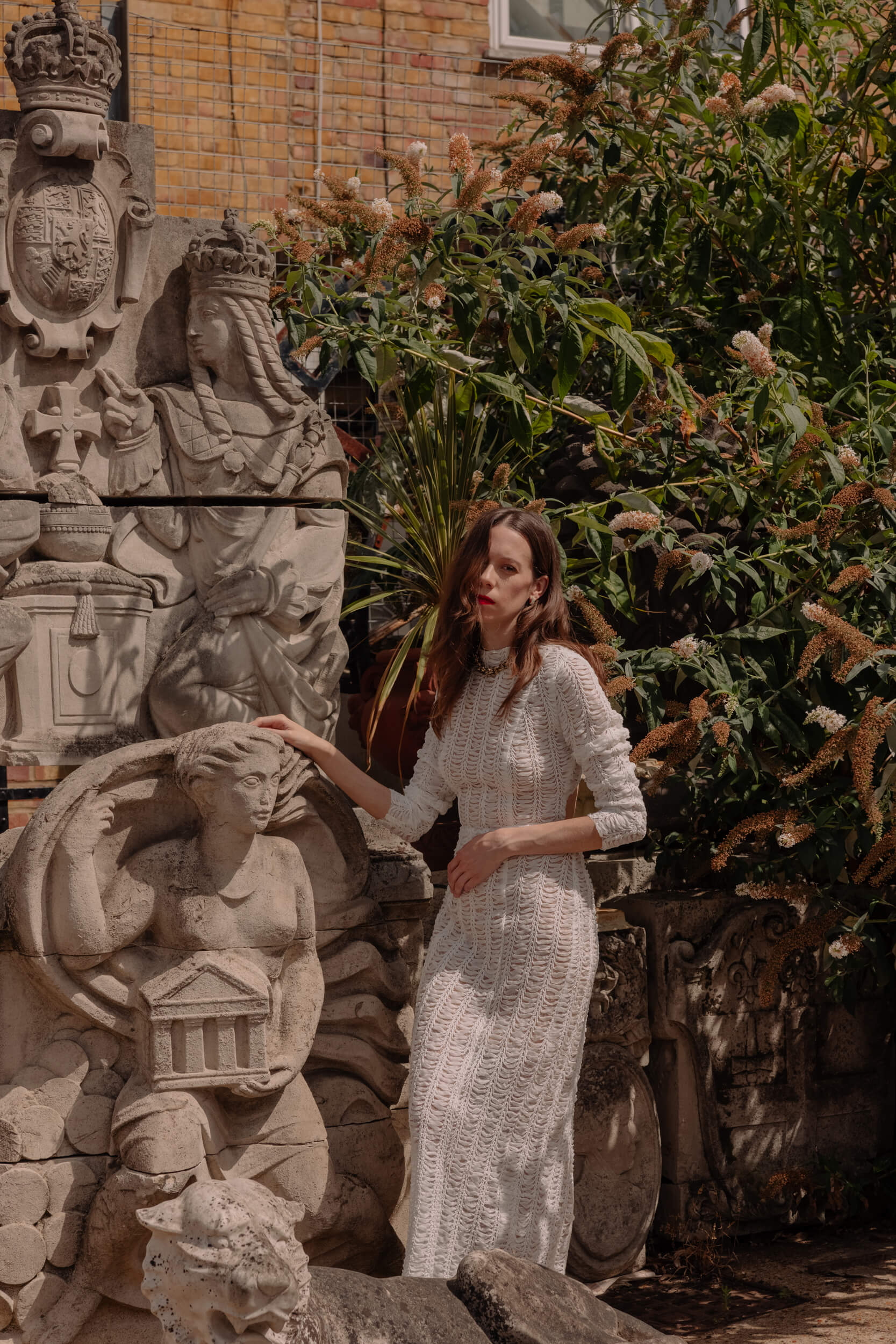
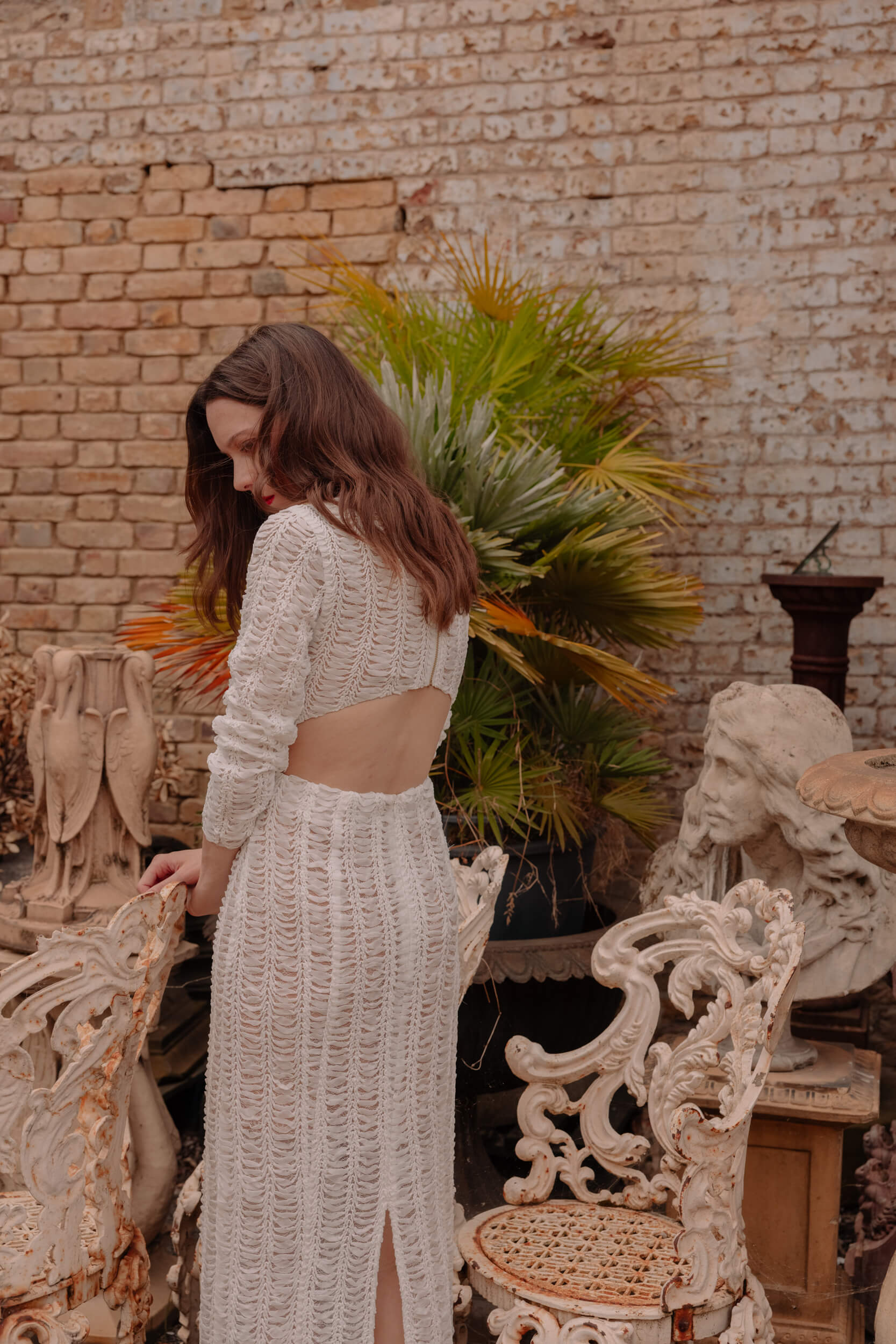
What’s your happy place?
I love being in London, walking my dog, in Alexandra Palace – that’s her happy place [laughs] – and in my kitchen, cooking, as I love cooking and I love food.
I’ve spent some time in Italy as a kid, and there was a period of time, between the ages of 2 and 6, where I wouldn’t eat anything but pasta [laughs]. And then, my mother was a good cook, so I realized I understood myself through cooking, that’s something I do to feel at home; when I cook, I feel grounded, and if I can’t do that for whatever reason, I don’t like it, so I’m always trying to find a way to connect with that part of myself wherever I am because it’s really important to me. That’s my happy place, I think.
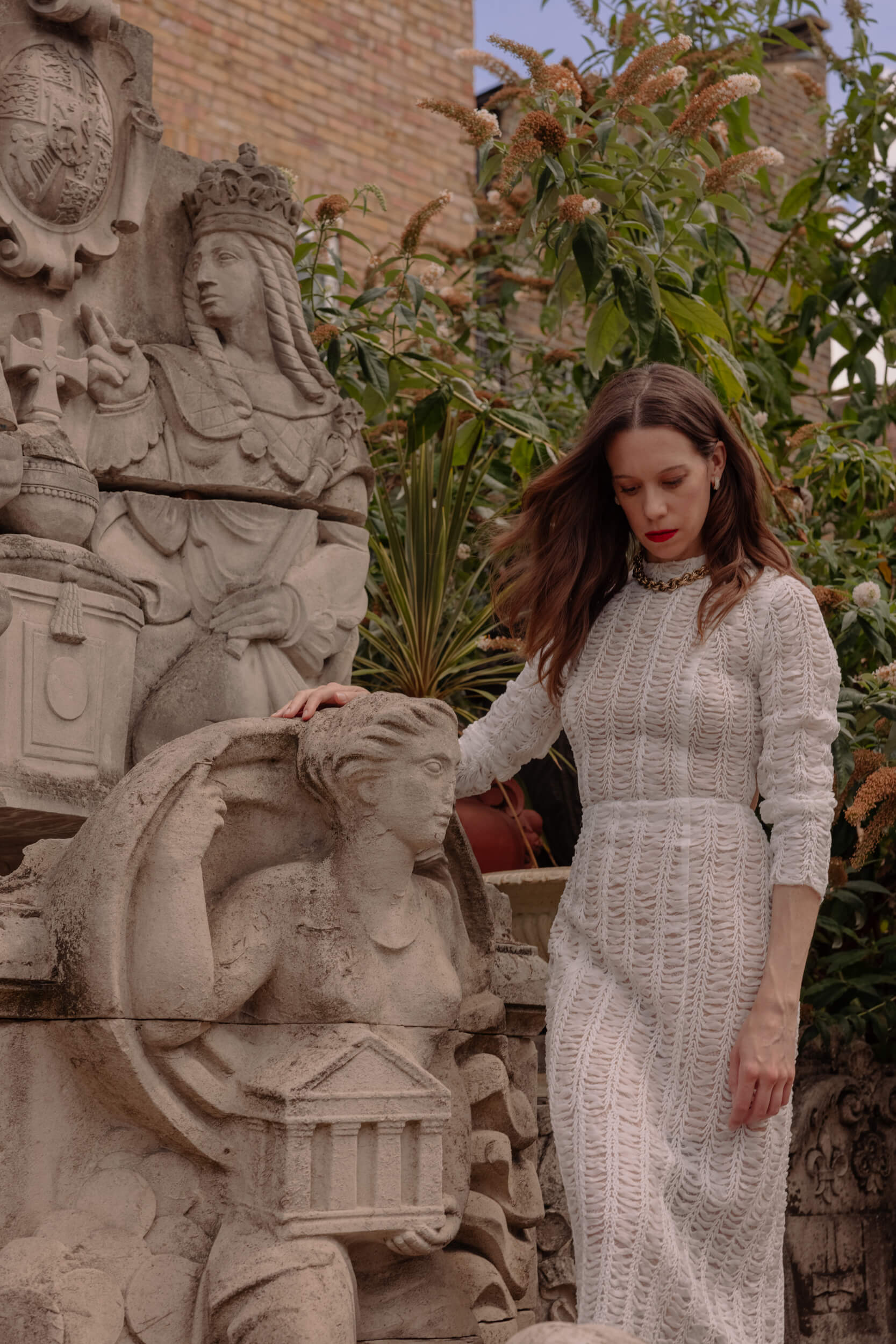
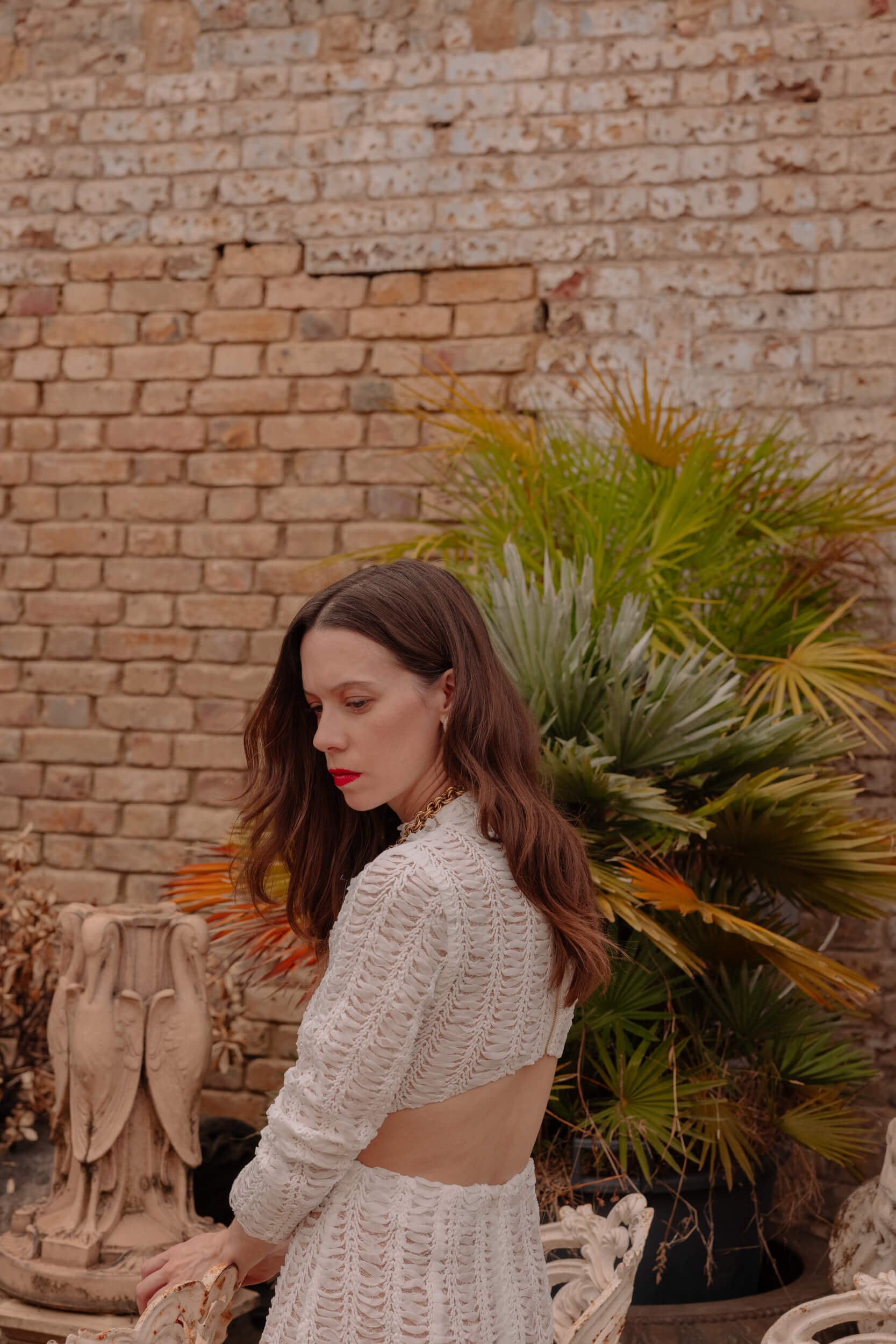
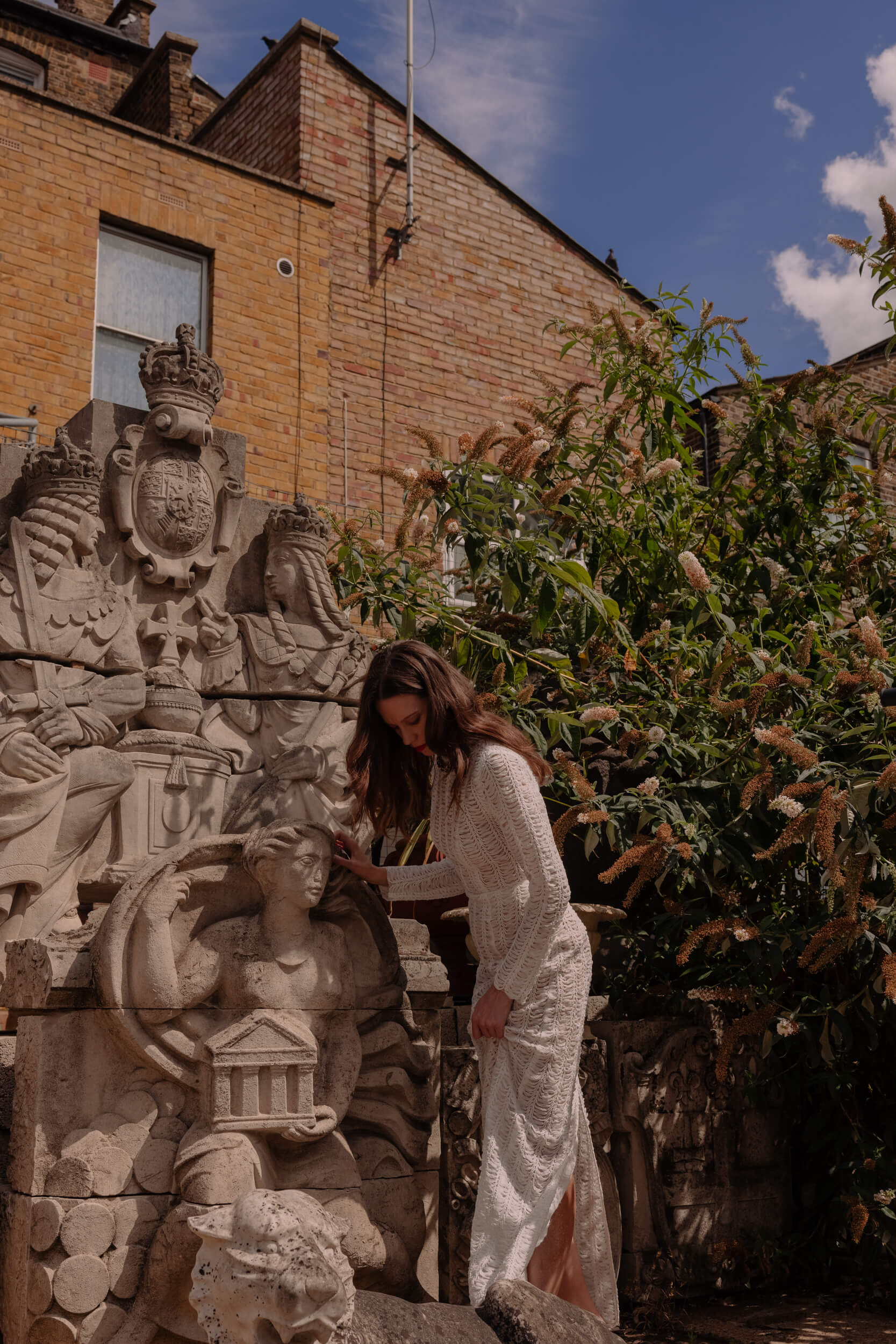
What does it mean to you to feel comfortable in your own skin?
I think it’s just accepting that the type of work I want to do is one in which what you’re focused on is the life of the person, no matter what they’re doing. I want to feel free of any sense of vanity, not worrying about what it would look like. So, it’s being able to withstand the fact that other people may see that differently, feeling free to tell the truth – that’s where I feel comfortable, and the environments that promote that make me feel comfortable; I would probably avoid any environment where I didn’t feel like I had that freedom unless it was part of the character to some extent; but again, you can explore a character that’s very vain and looks incredible and everyone else thinks it’s like that, but you’re actually telling a different story.
So, it’s the opposite of not feeling physically comfortable and not feeling like your opinion can be taken into consideration and you can say no to things: it’s just being real to people and not changing yourself too much to fit into what other people expect of you.
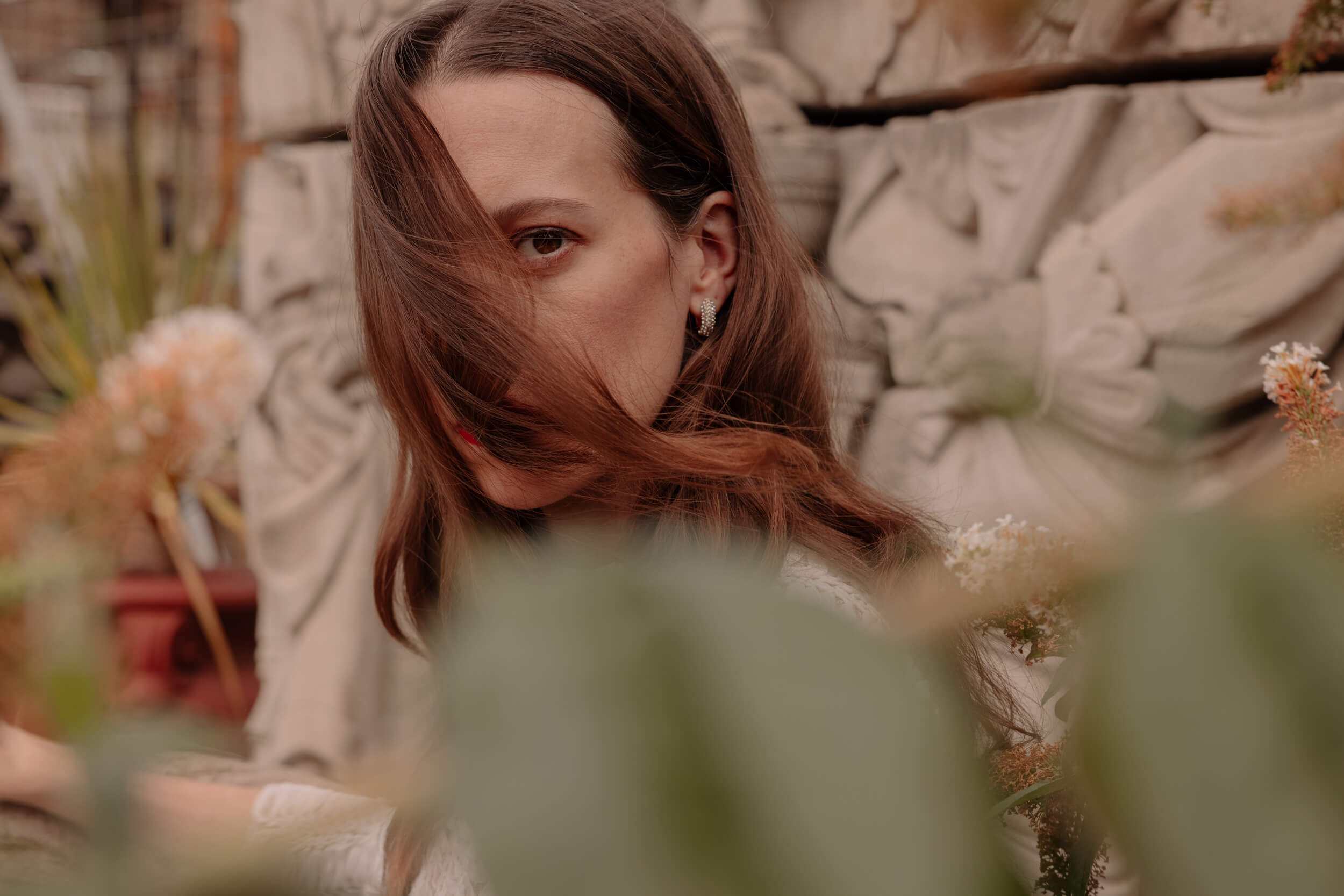
Photos & Video by Johnny Carrano.
Makeup by Buster Knight.
Hair by Davide Barbieri at Caren using Balmain Hair.
Styling by Freya Monro Morrison.
Location Westland London.
Thanks to Prosper PR.
LOOK 1
Dress by Szabo Sihag
Shoes by Rene Caovilla
Earrings & Ring by Loveness Lee
Bangle by Alighieri
LOOK 2
Dress by Azzi & Osta
Shoes by Jimmy Choo
Earrings by Alighieri
Rings by Lark & Berry
LOOK 3
Dress by Elliatt
Shoes by Di Monno
Necklace by By Alona
Earrings by Pilgrim

